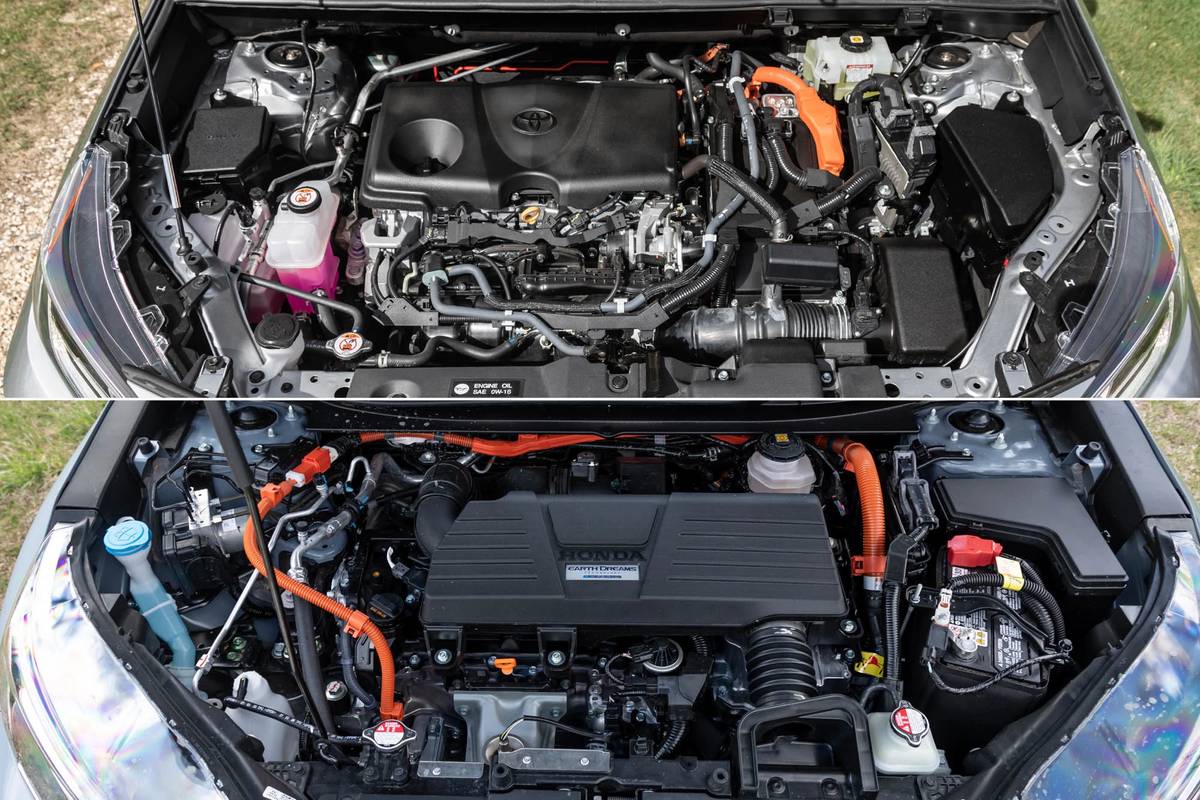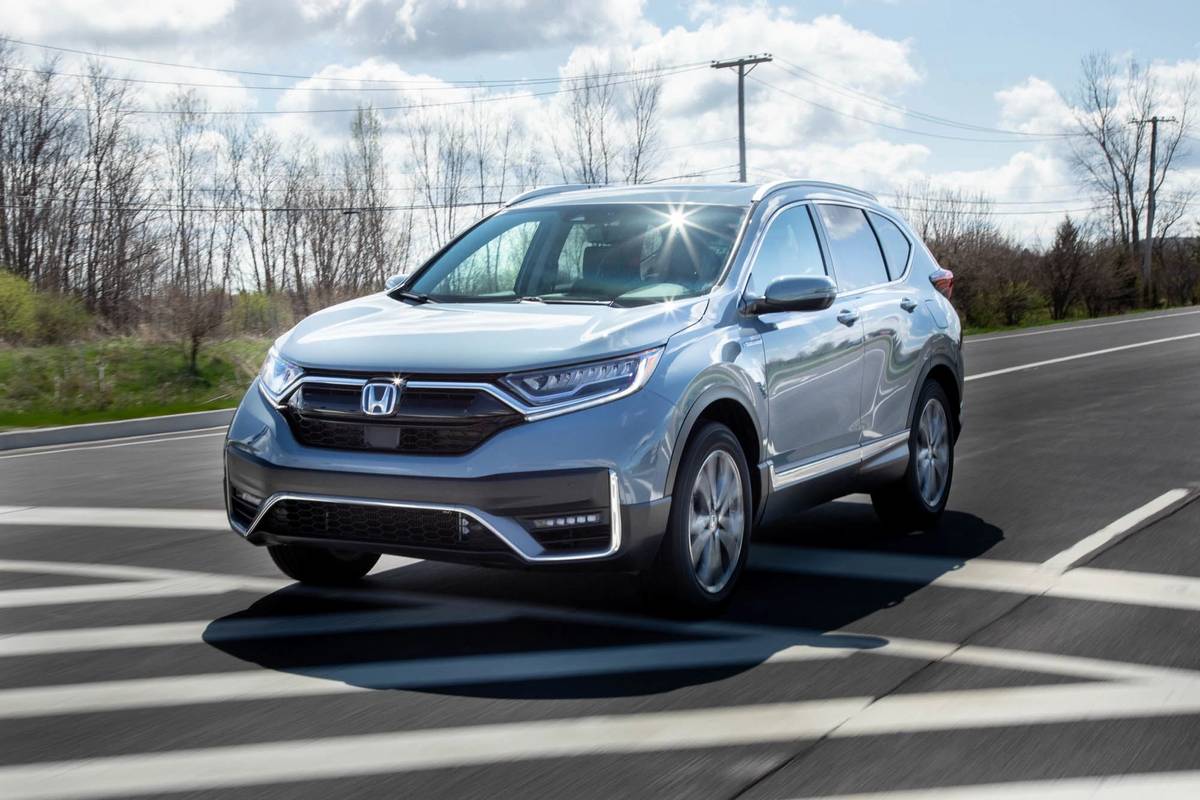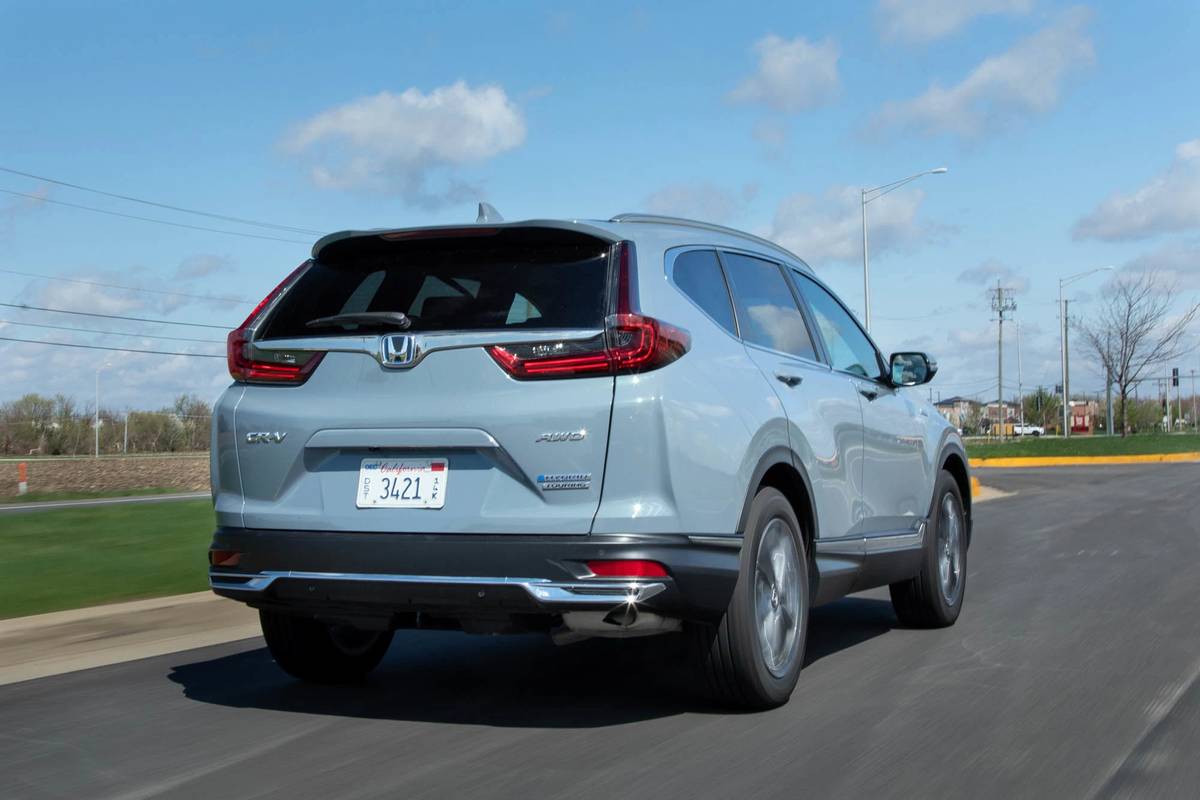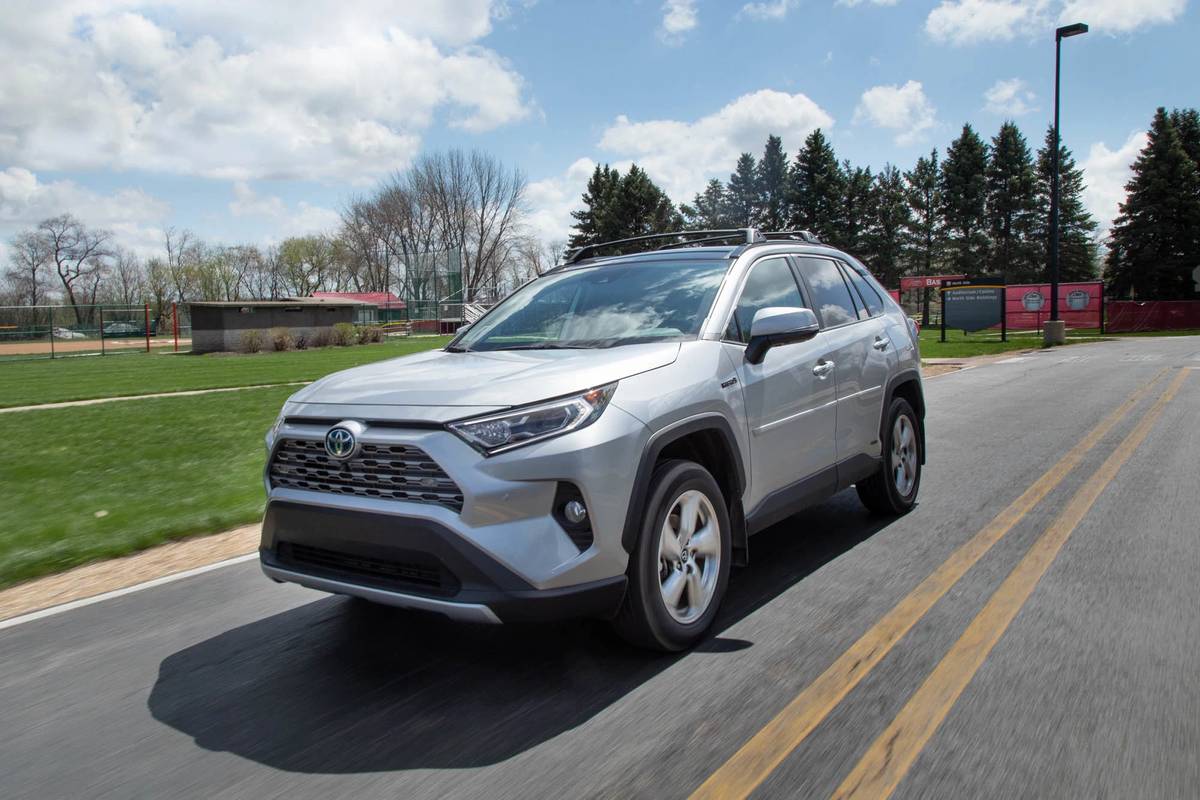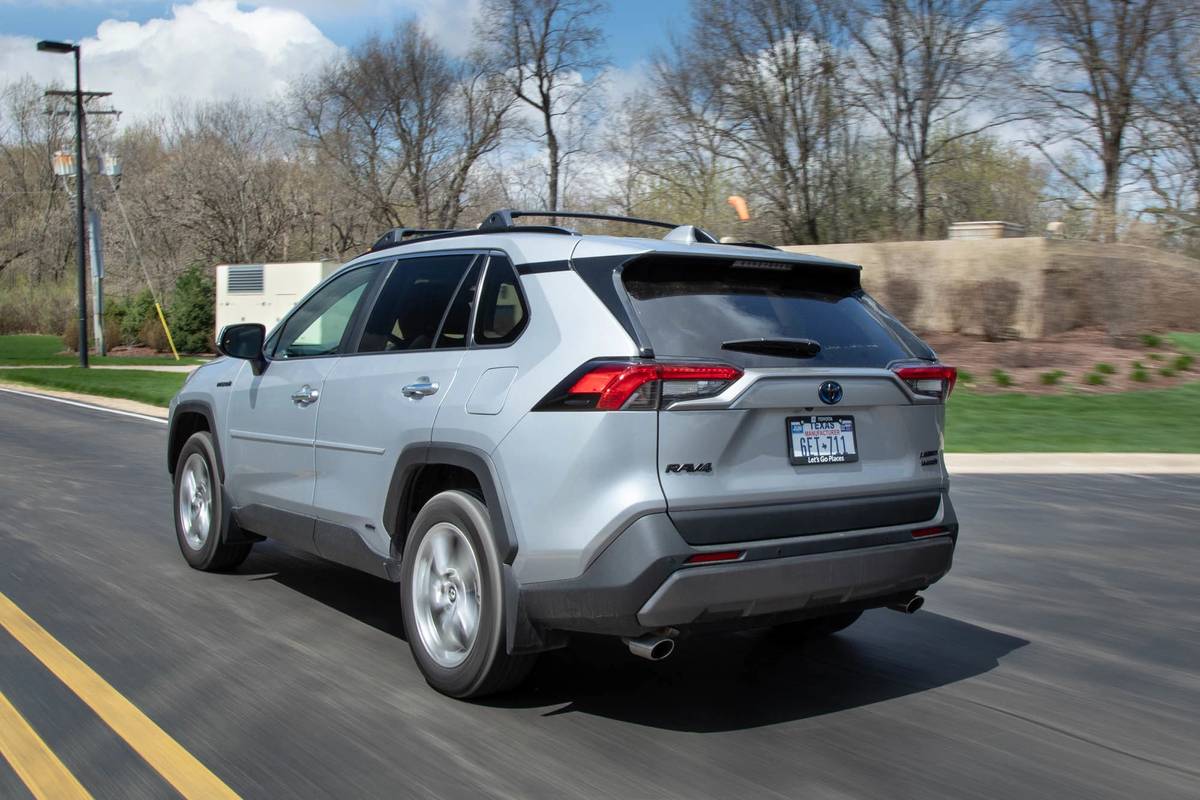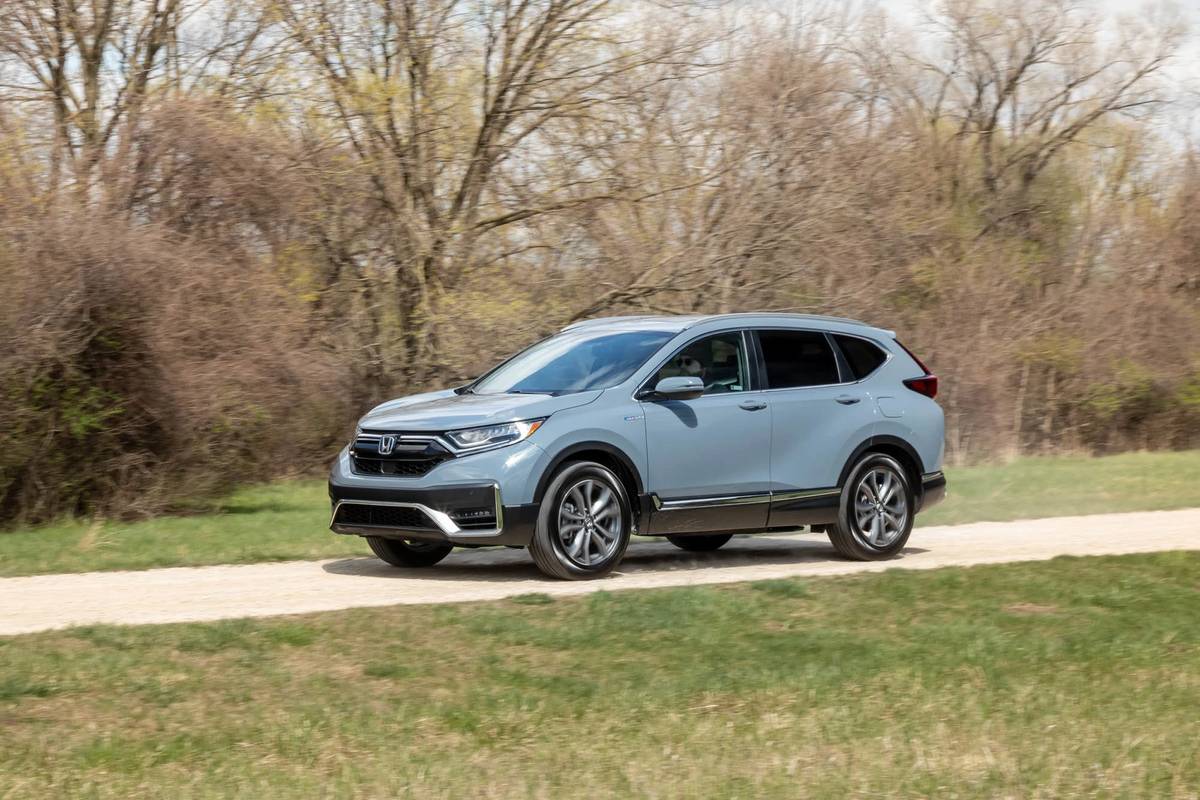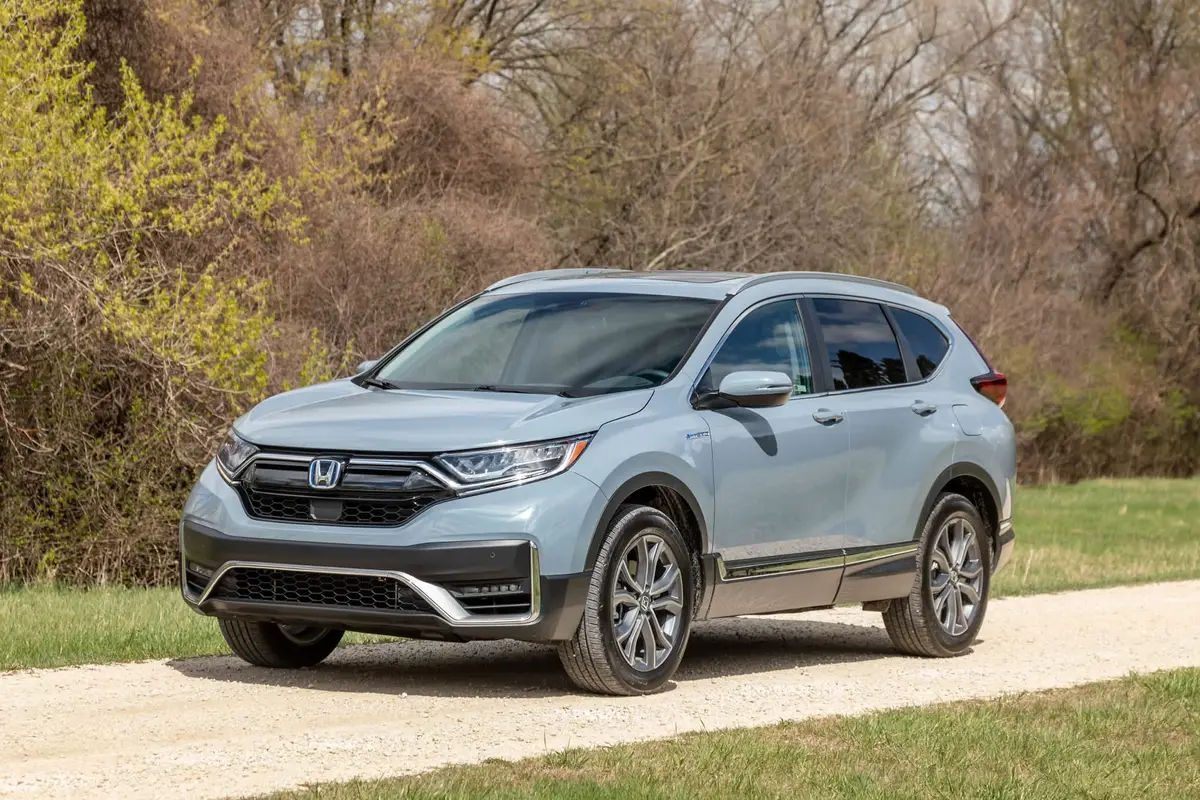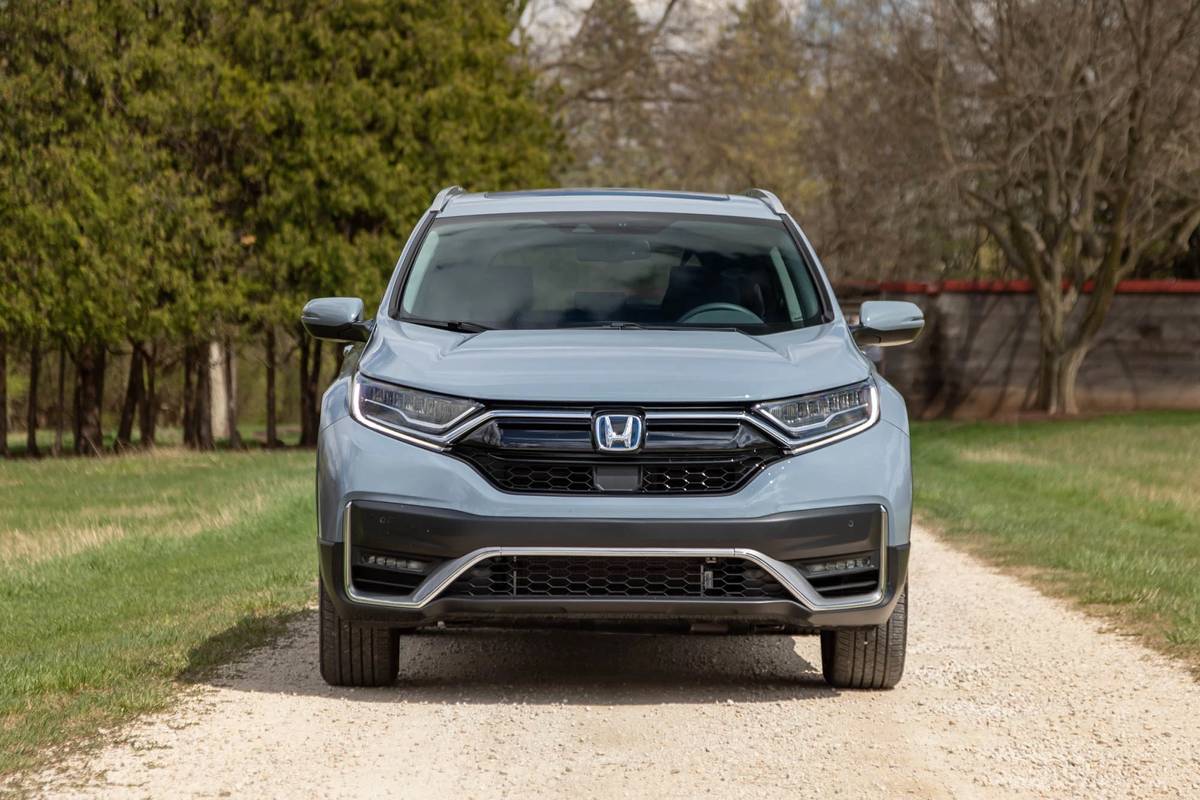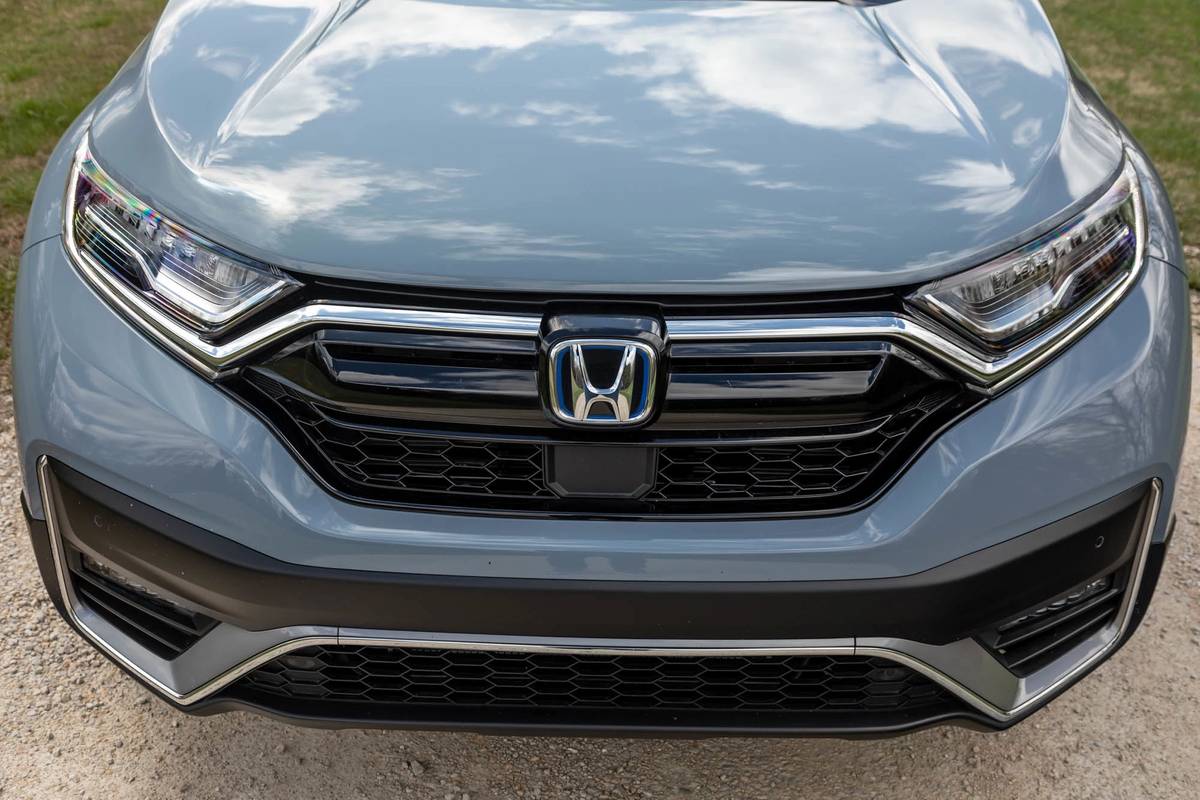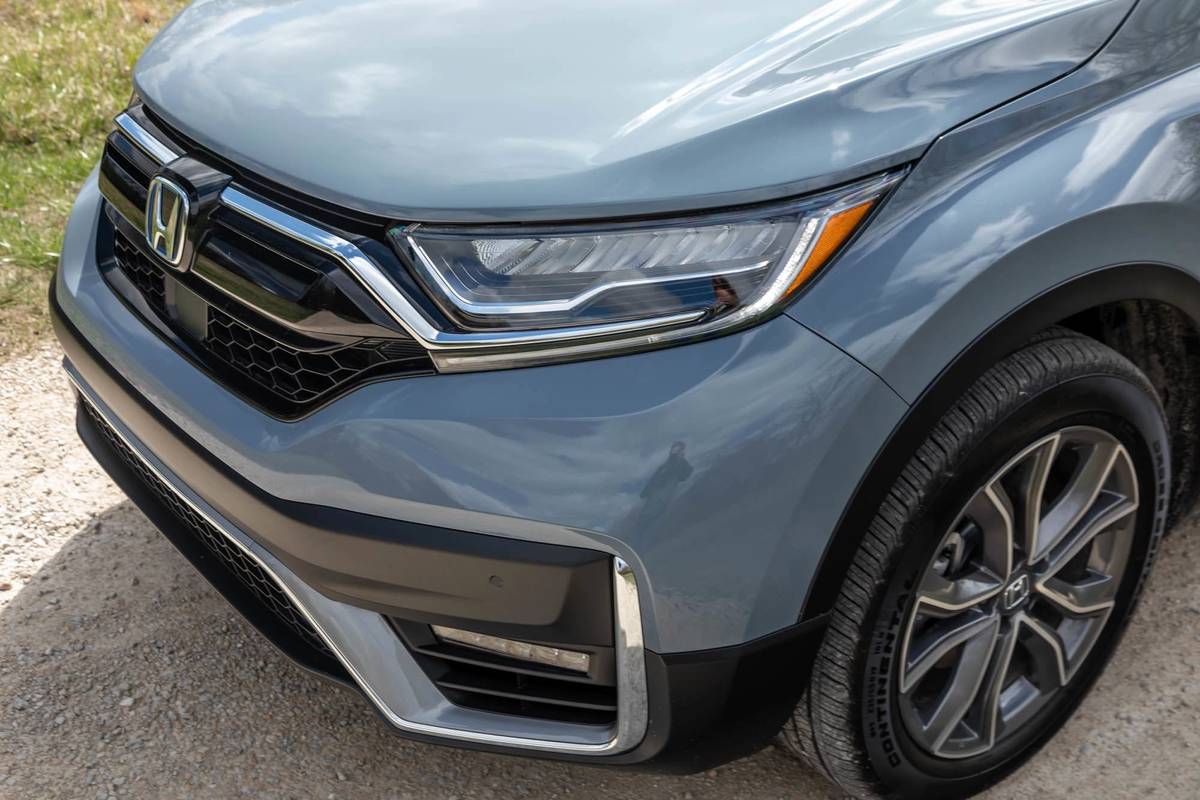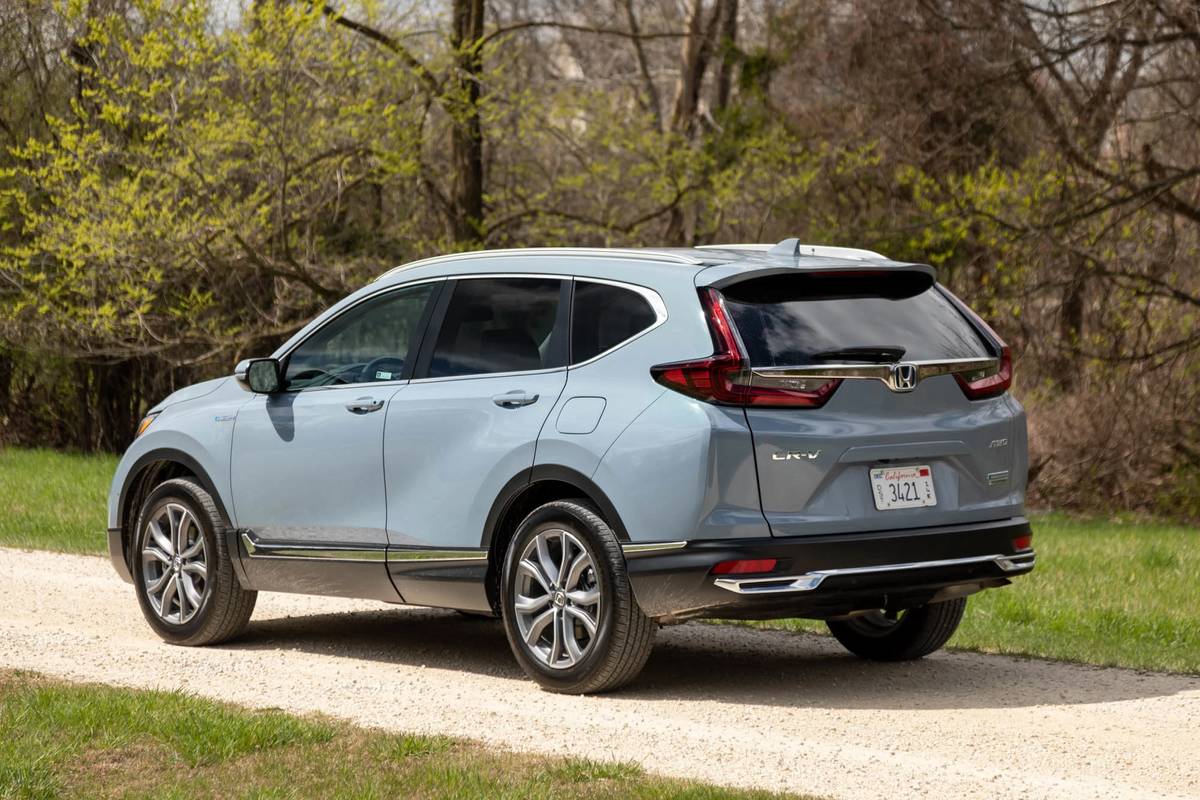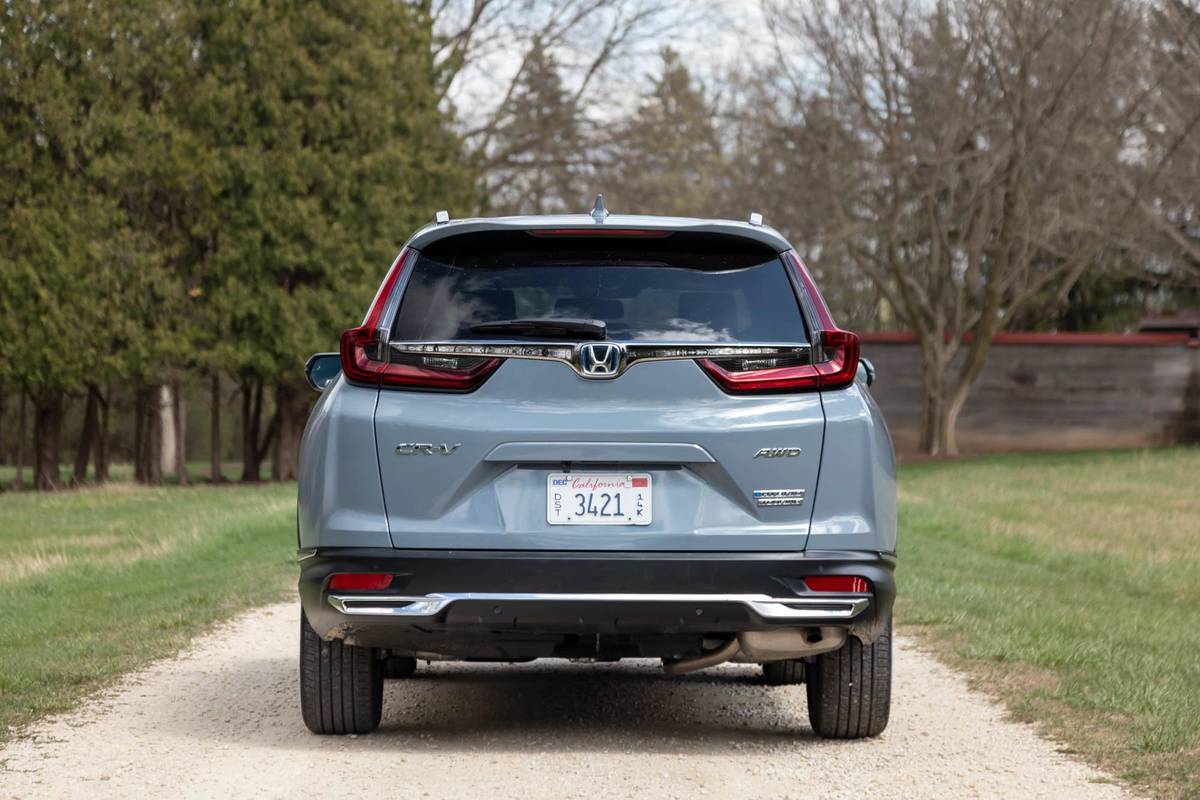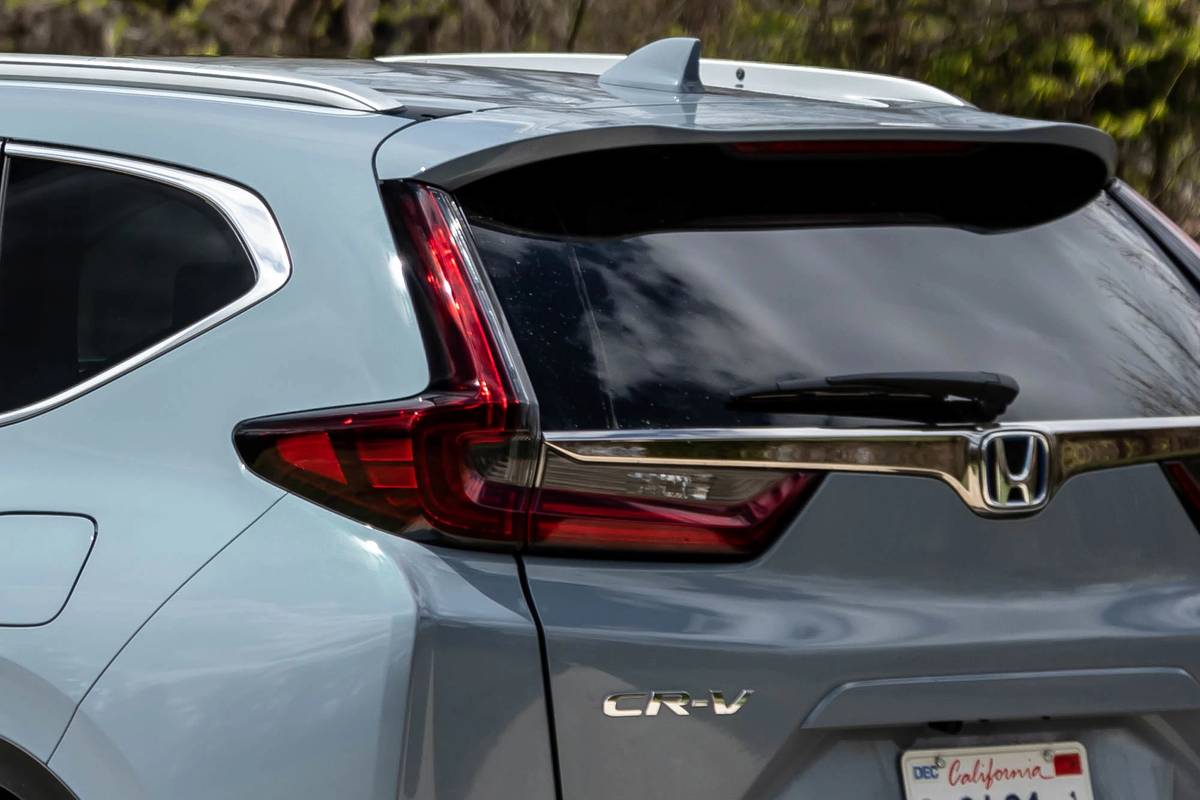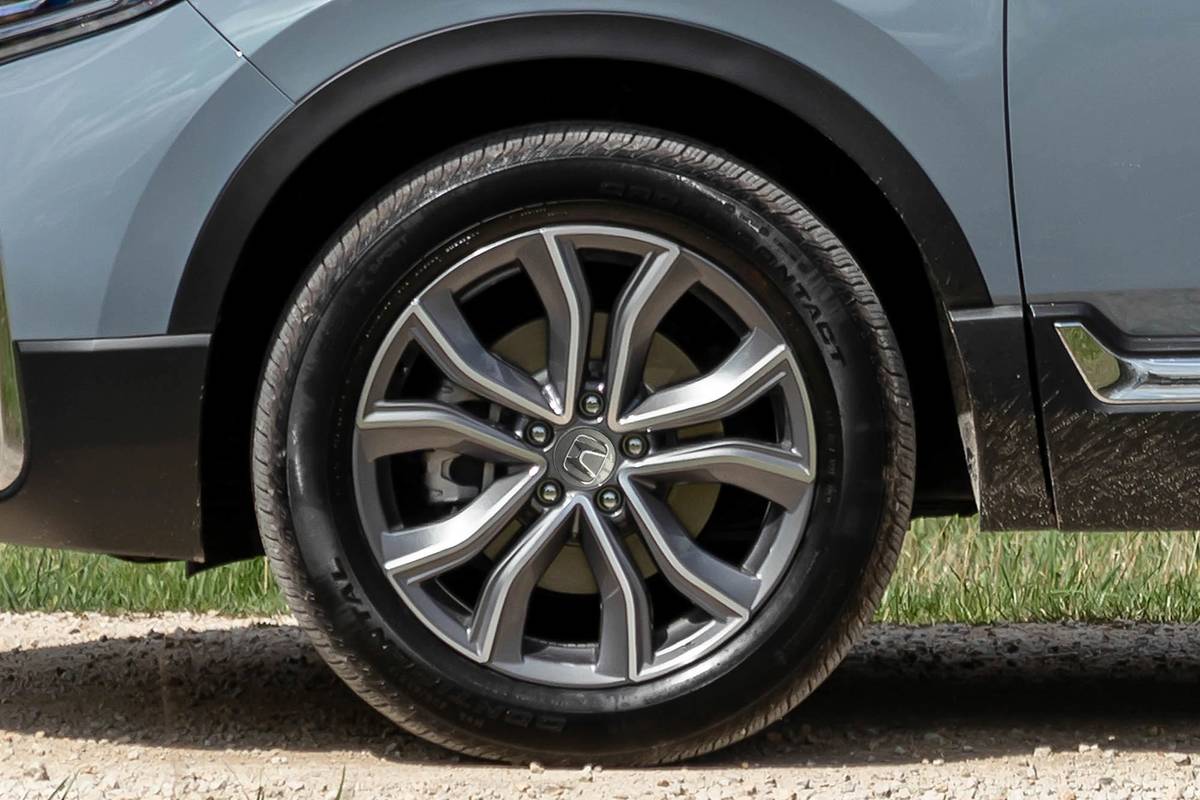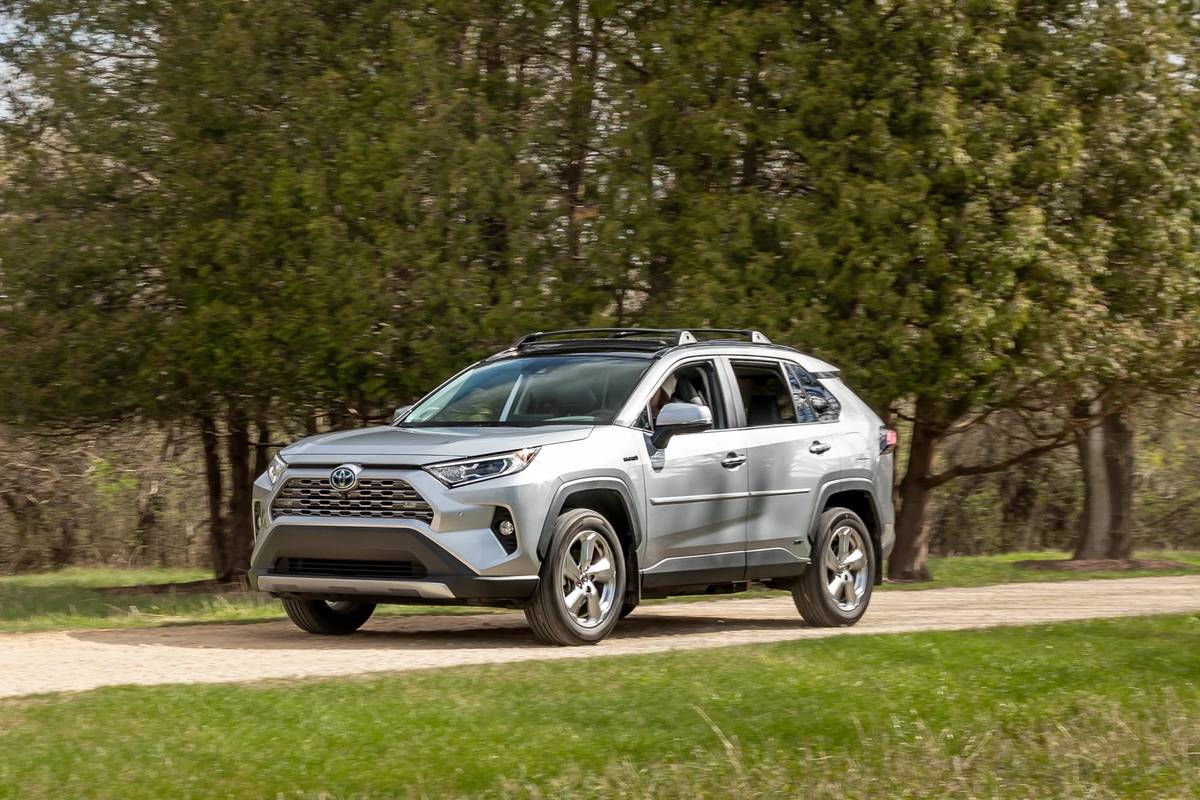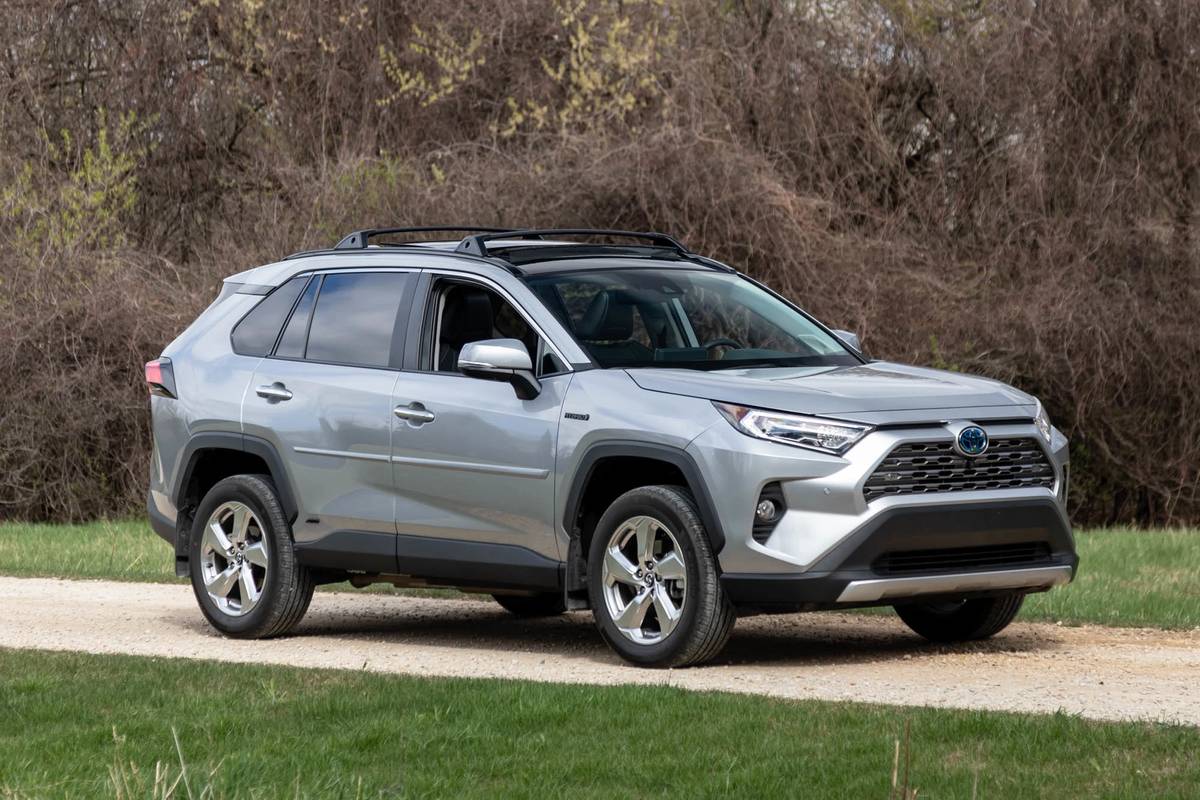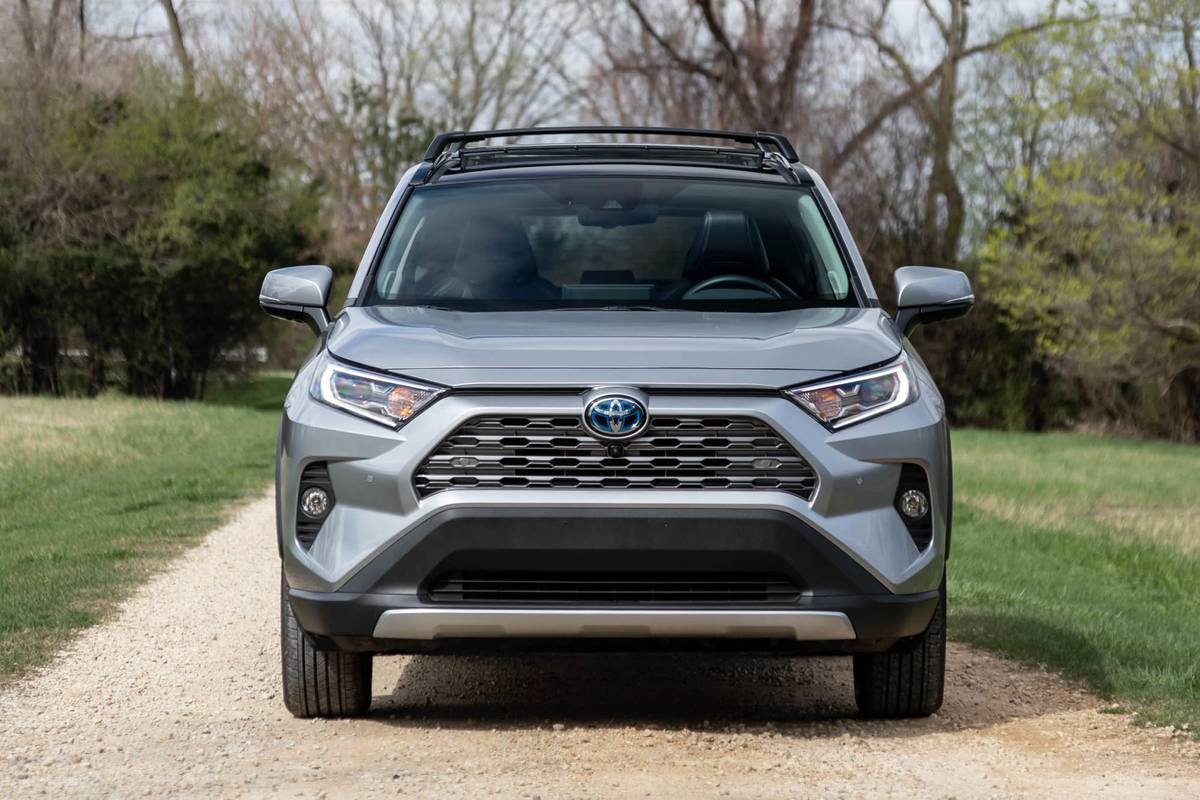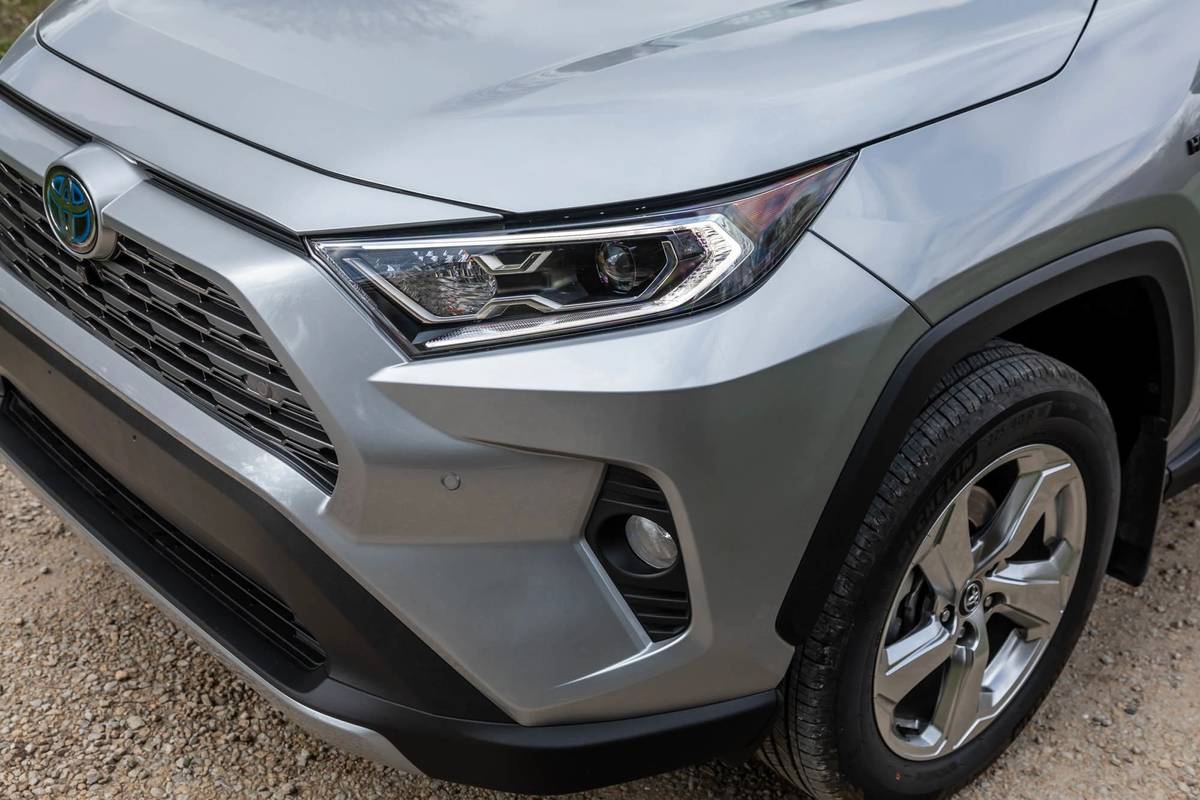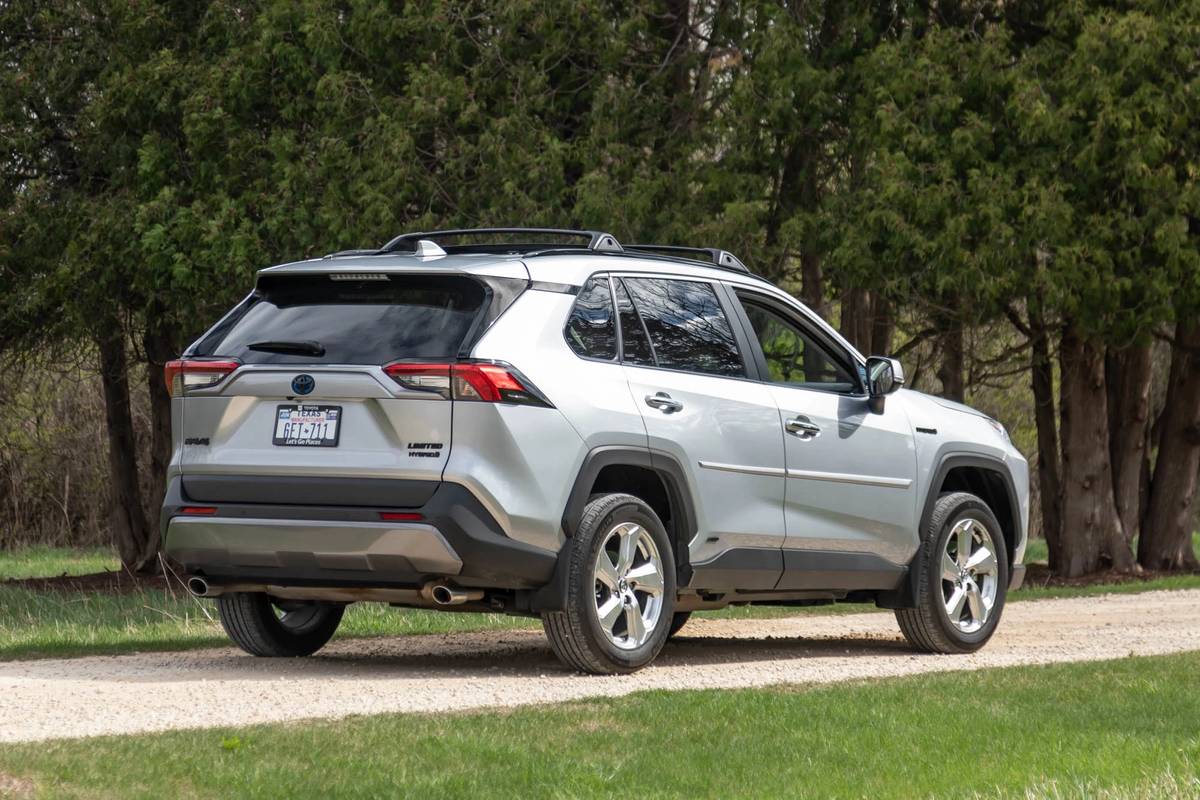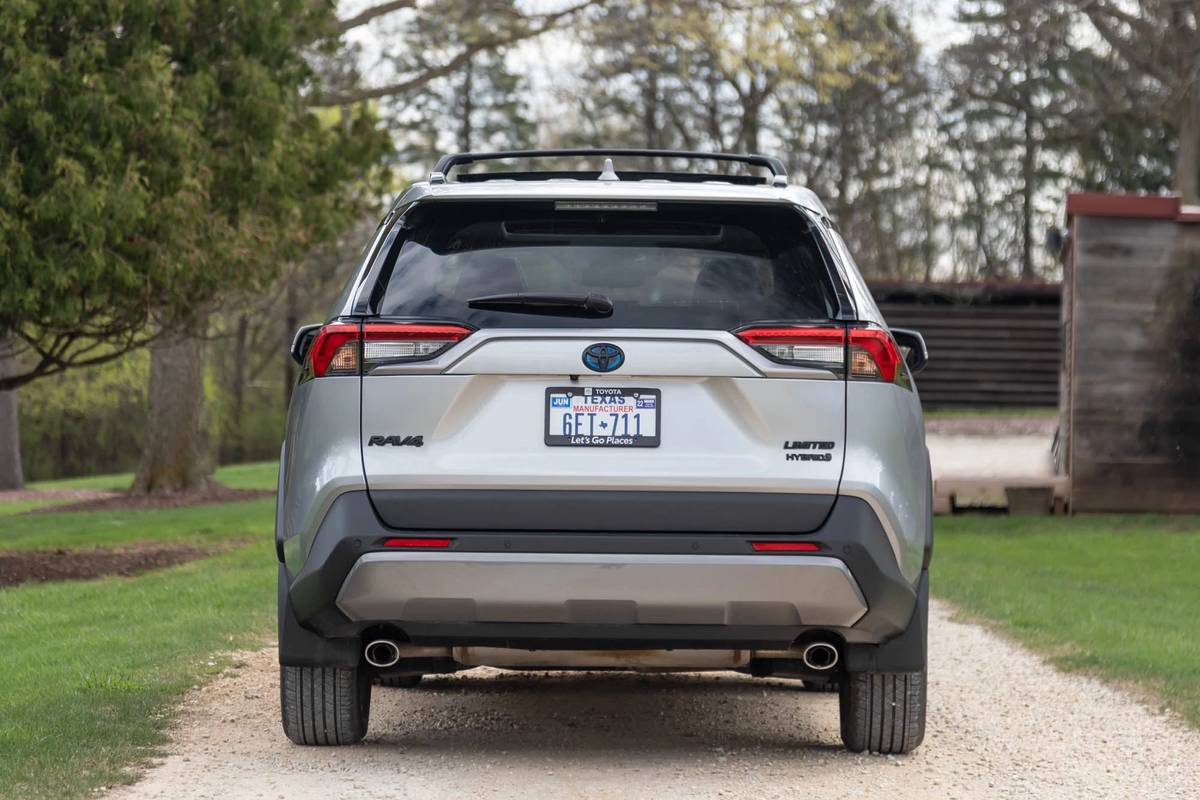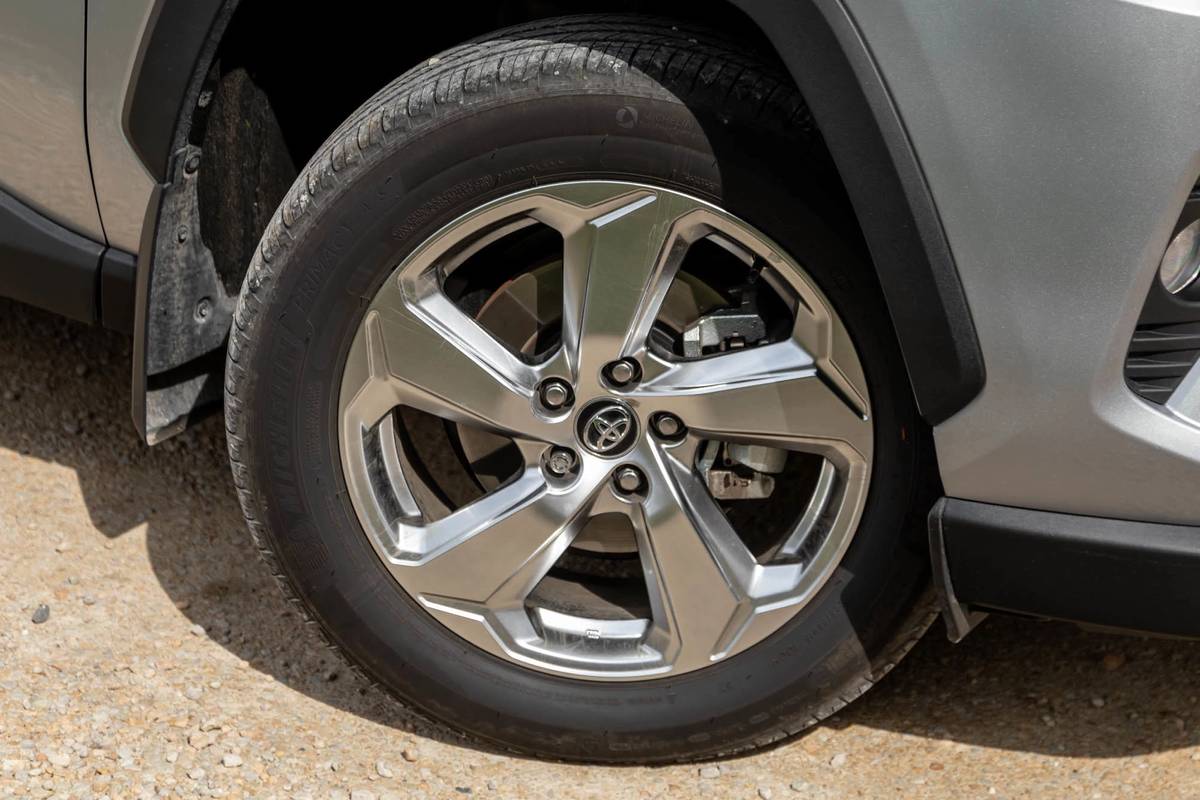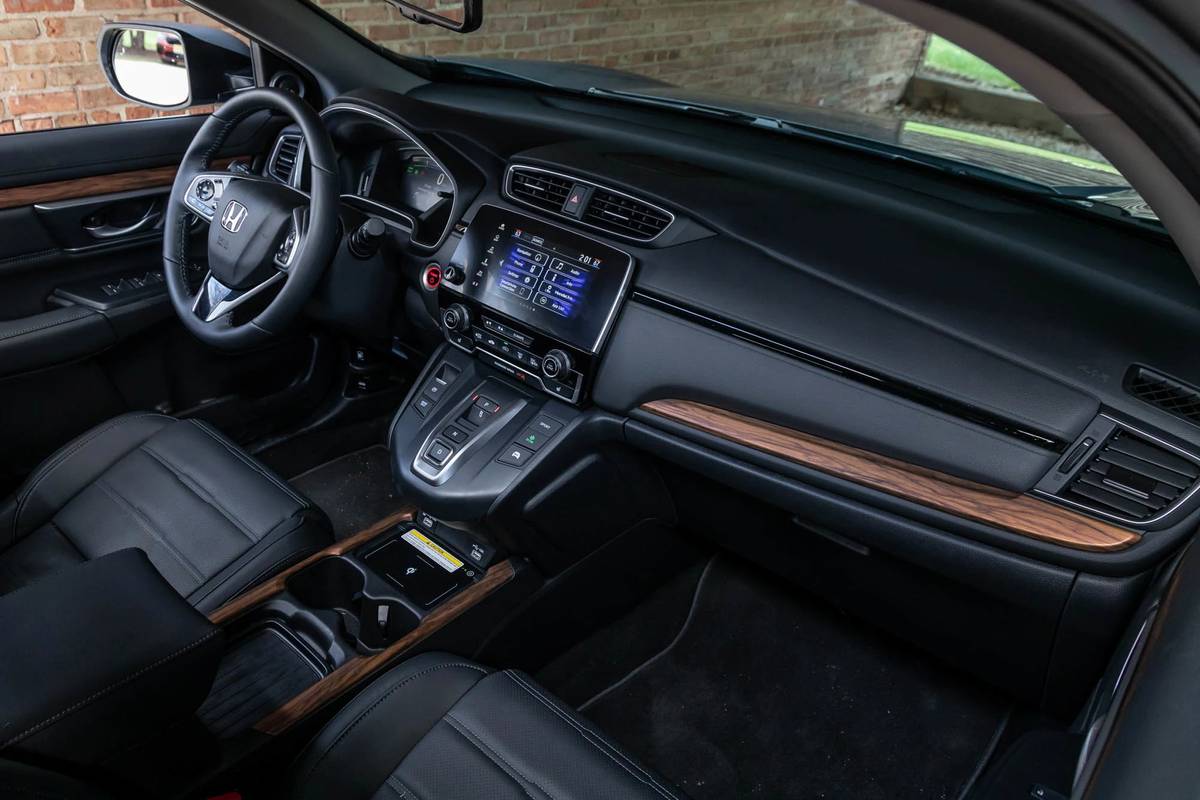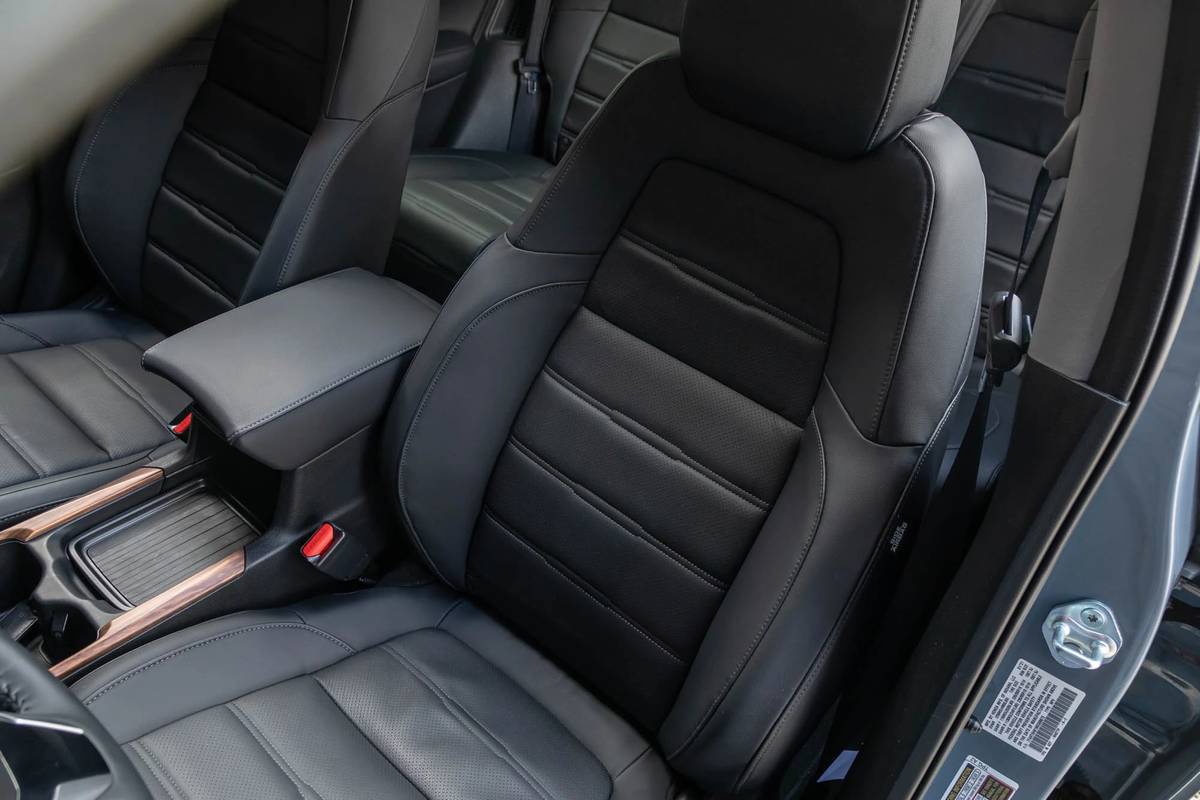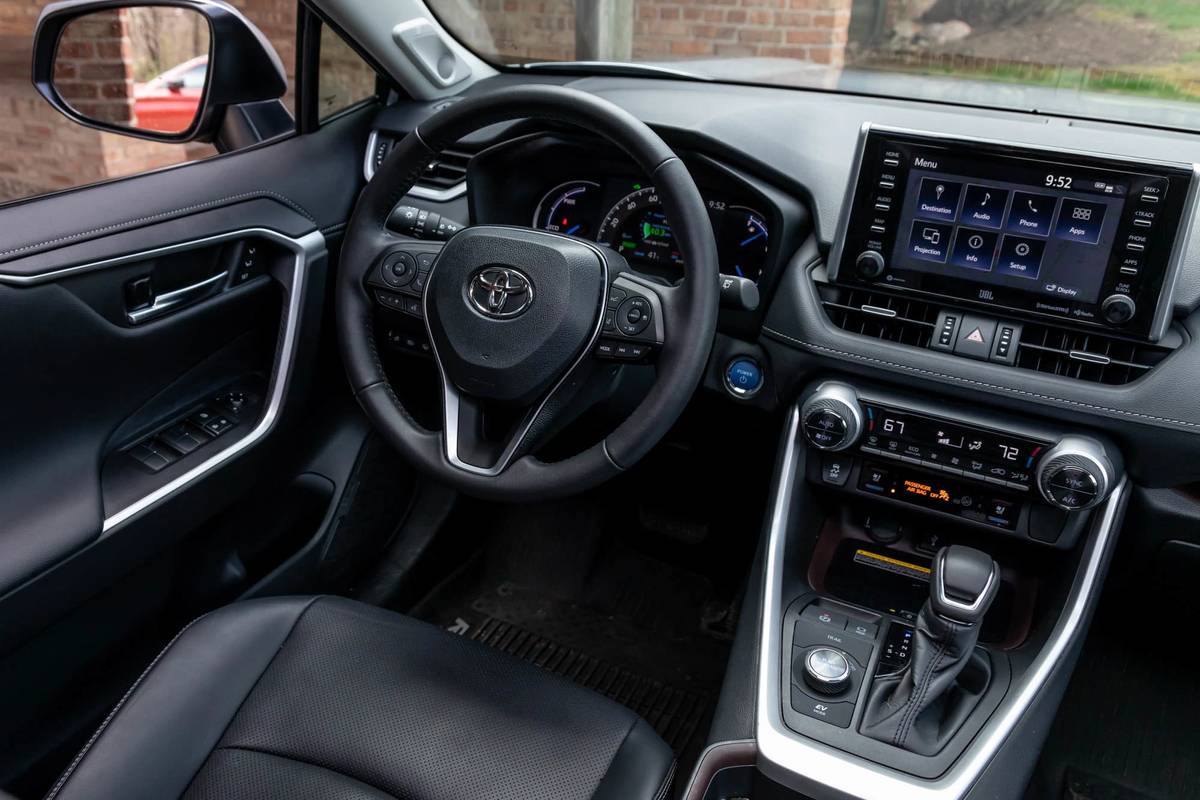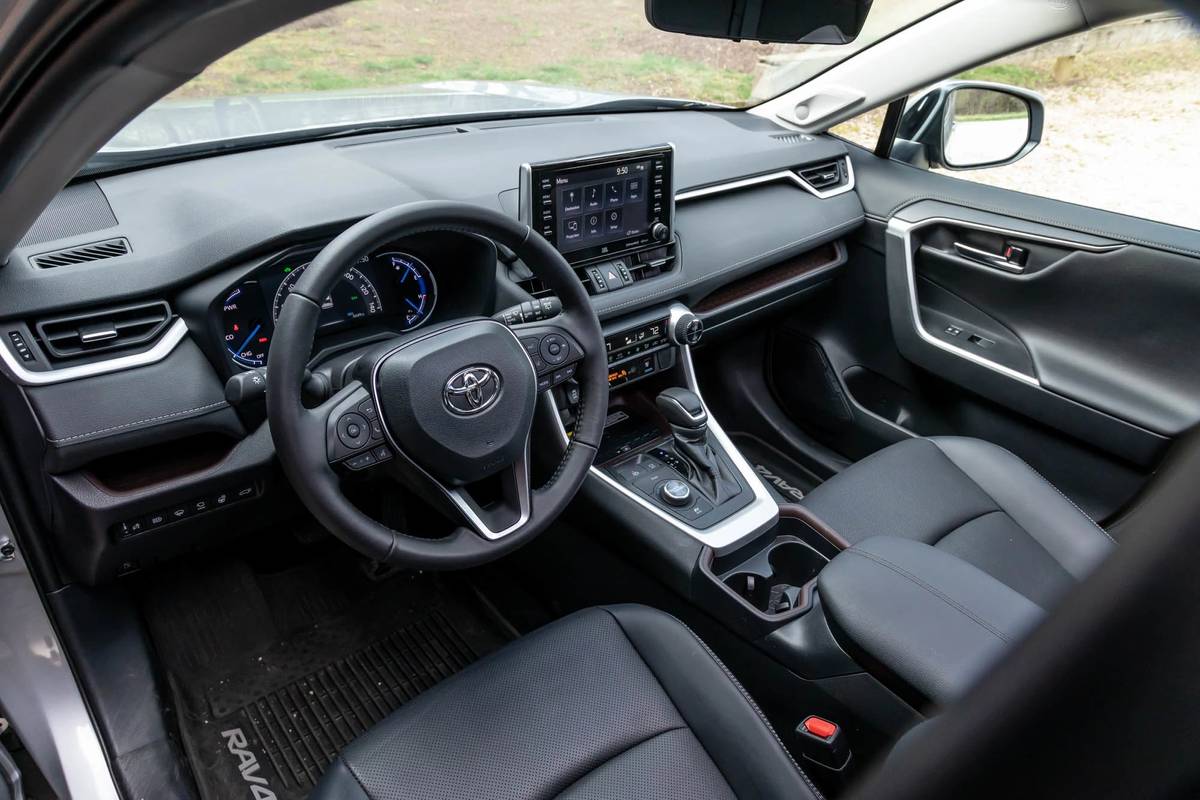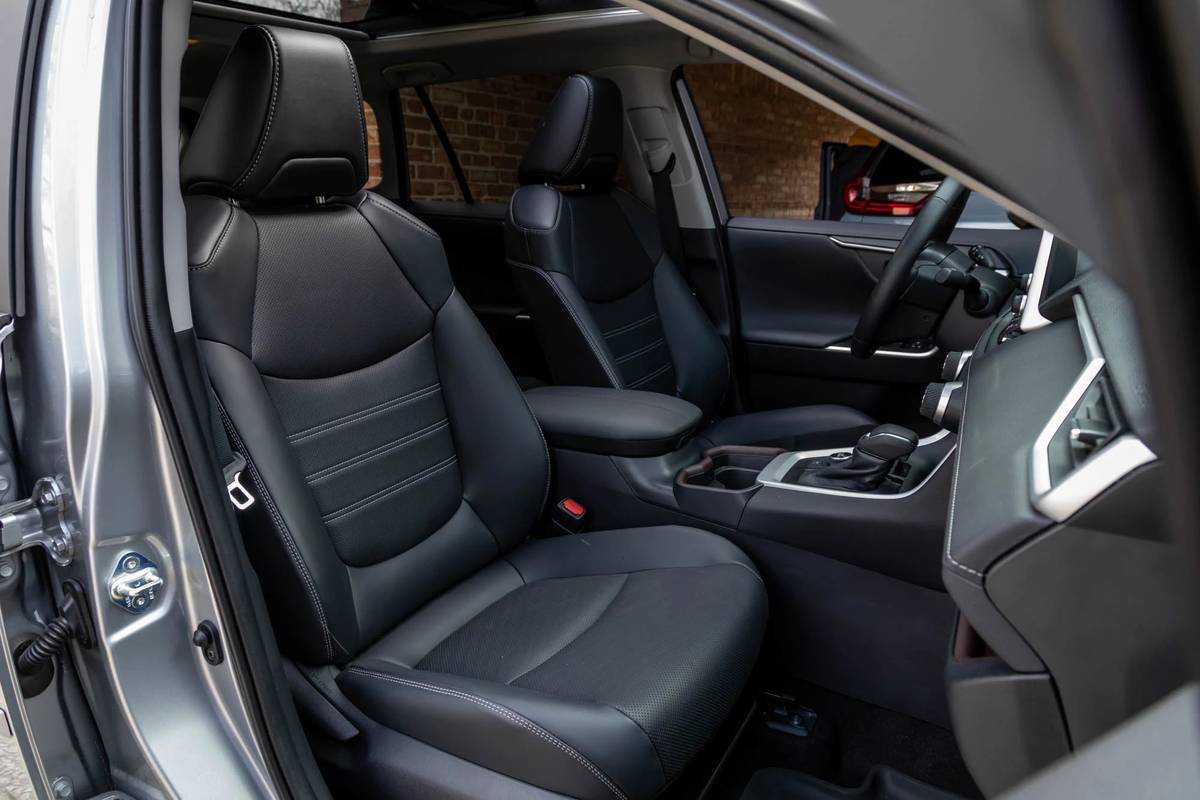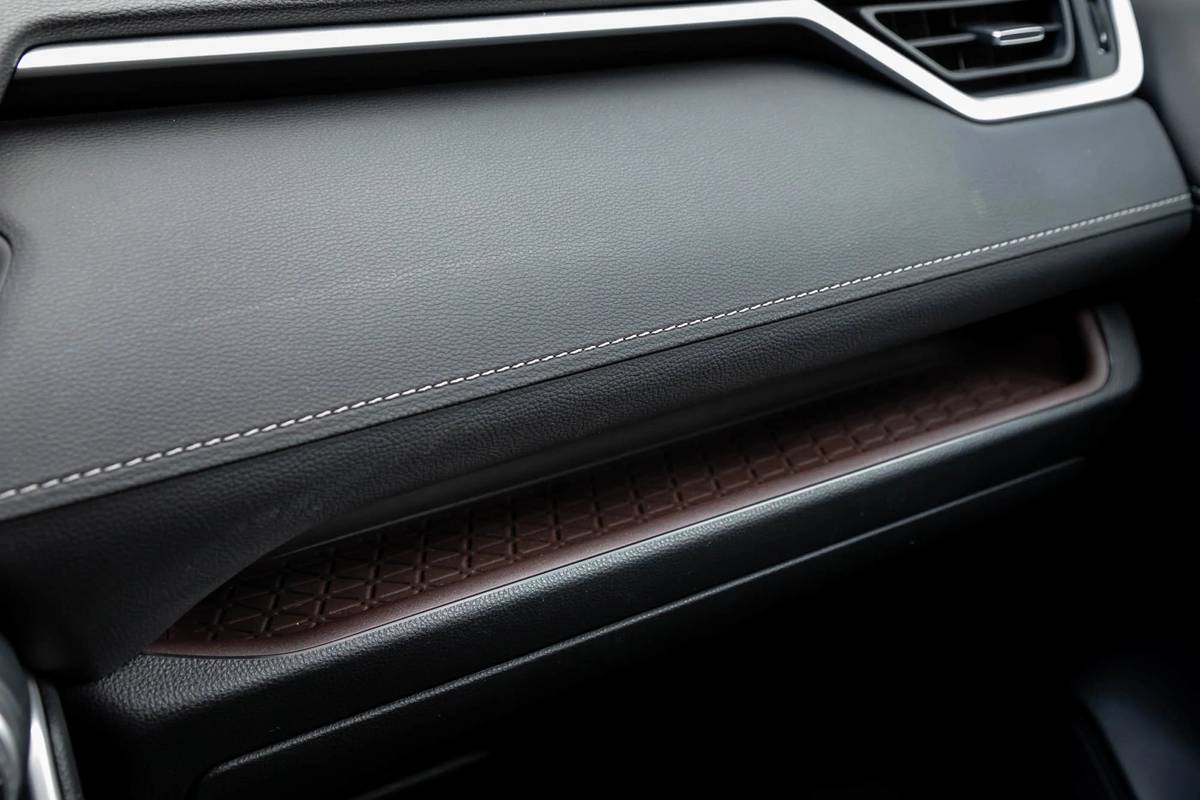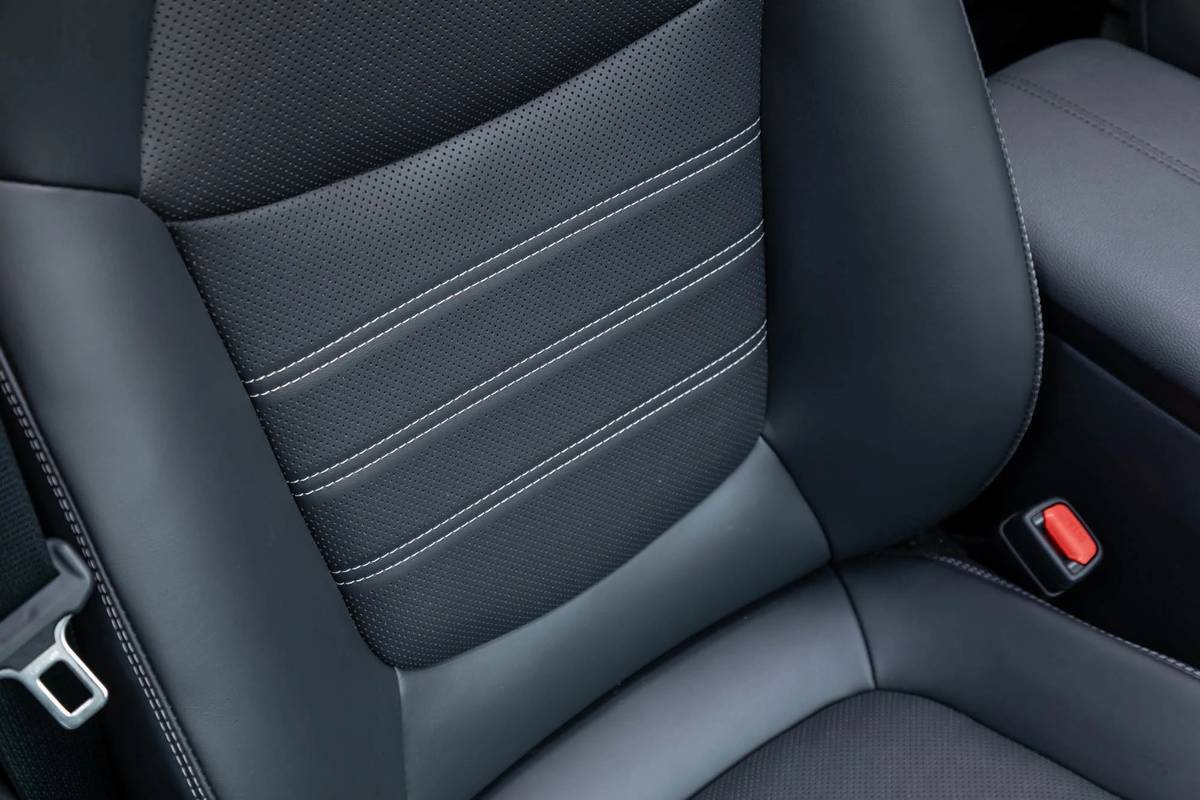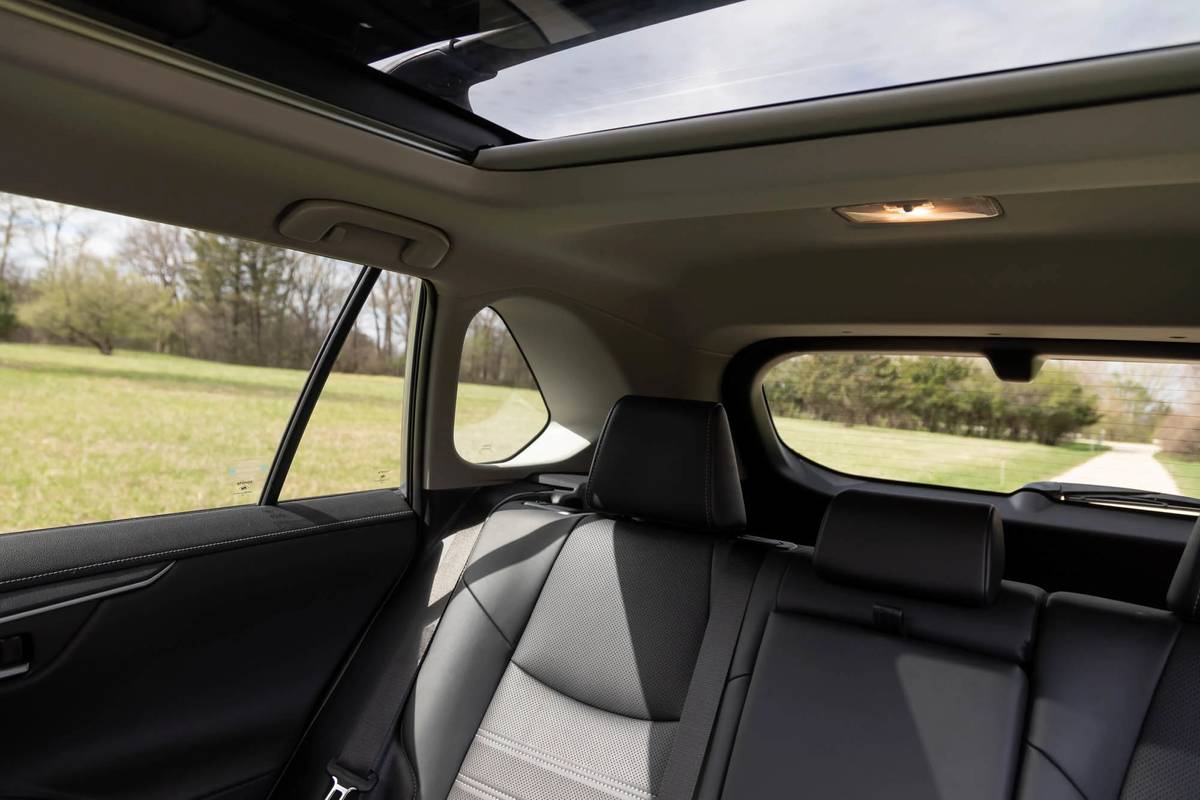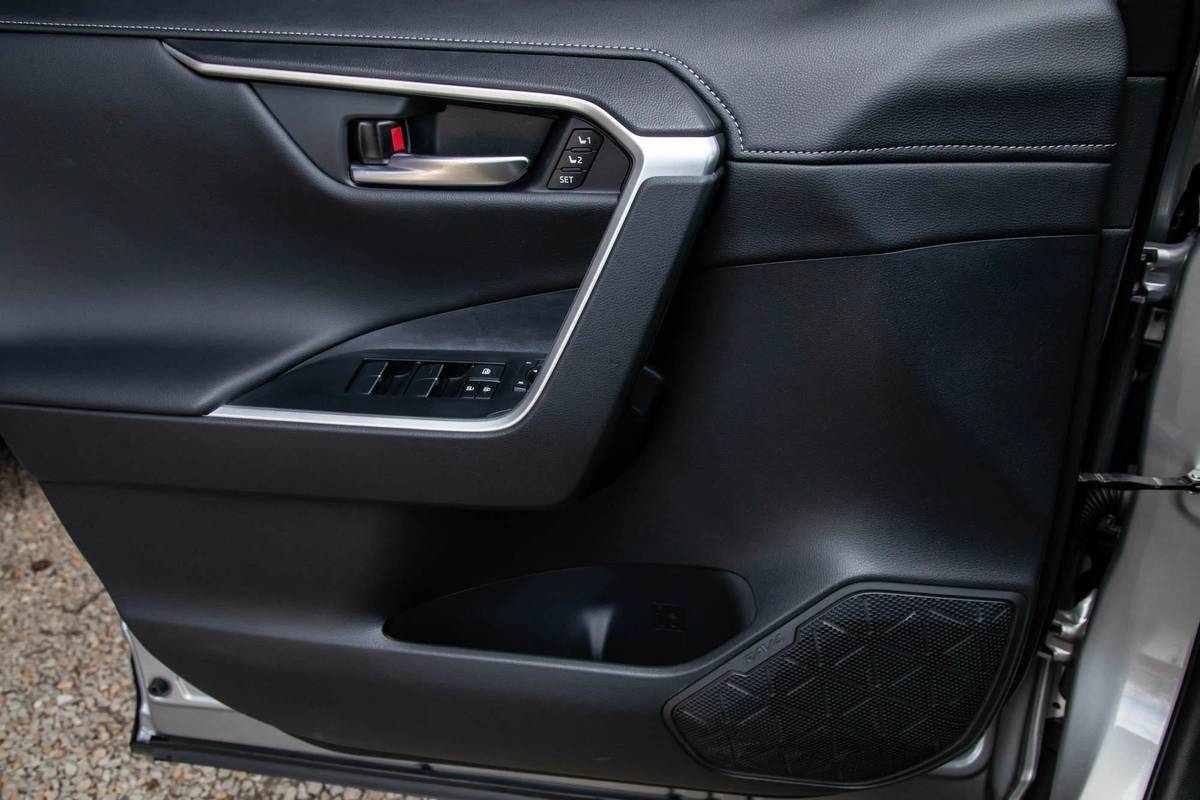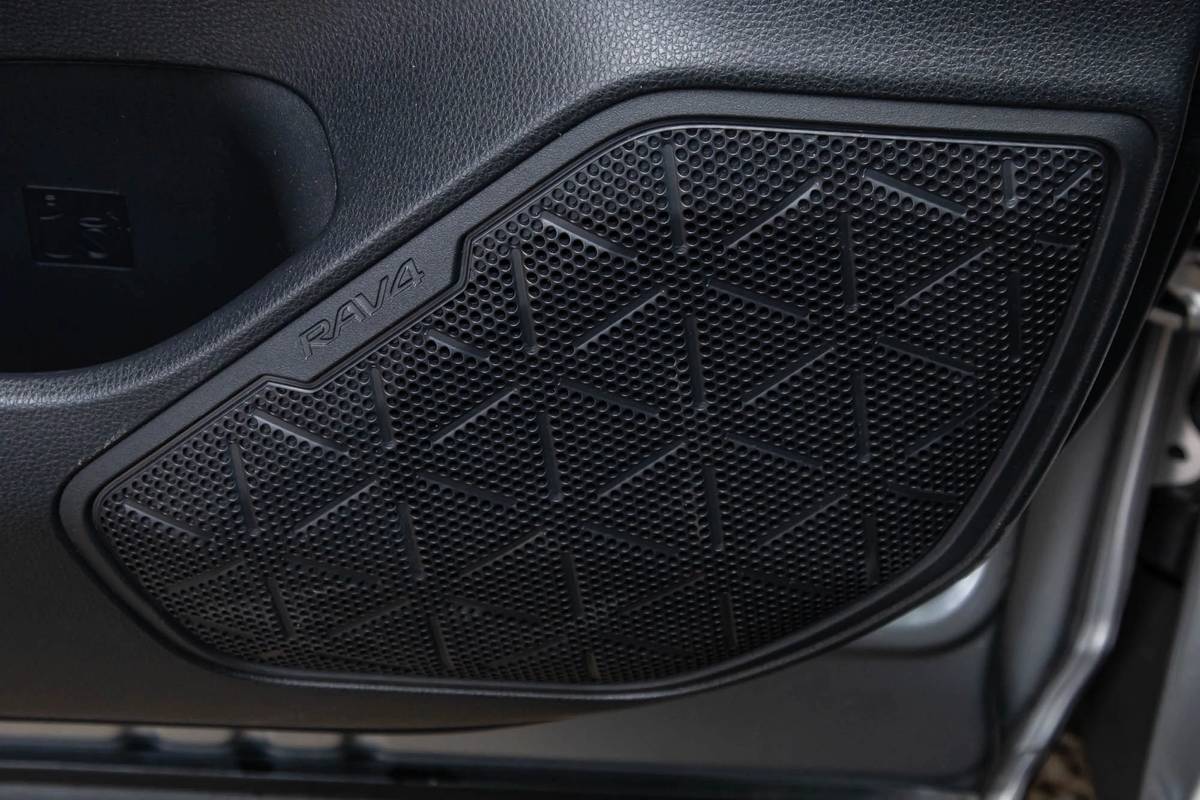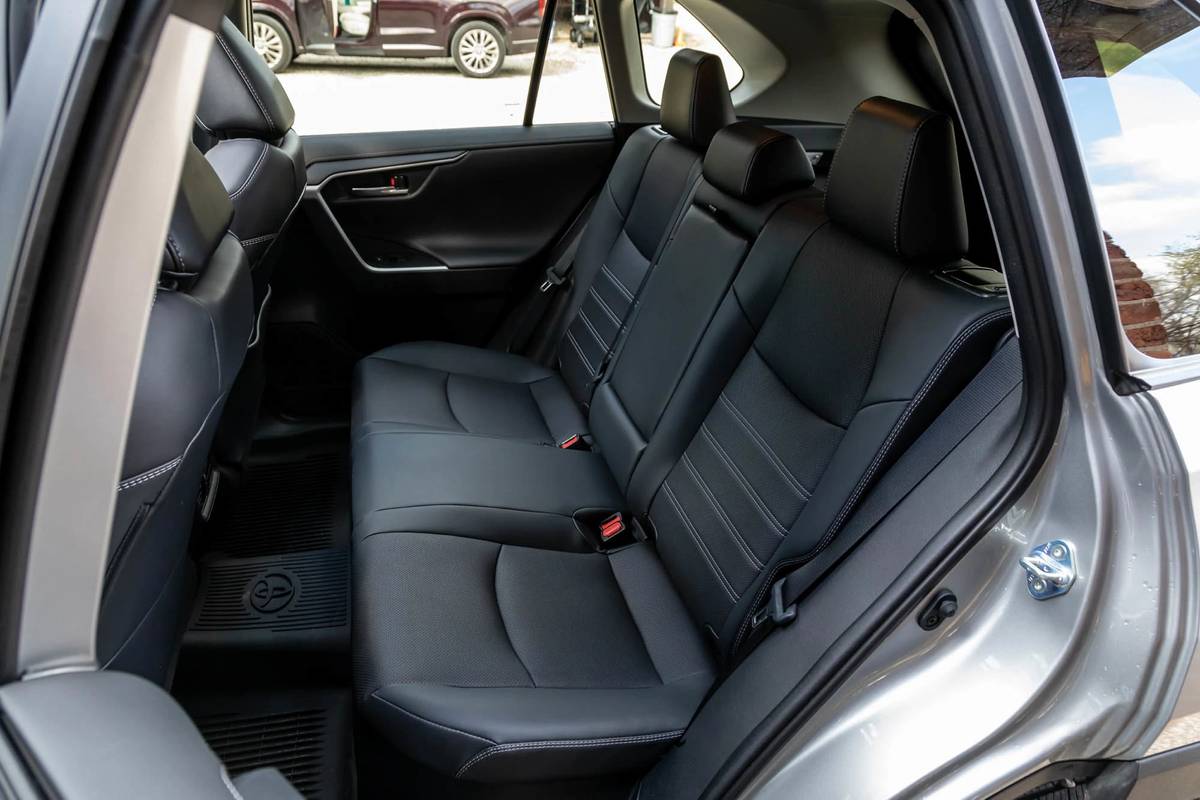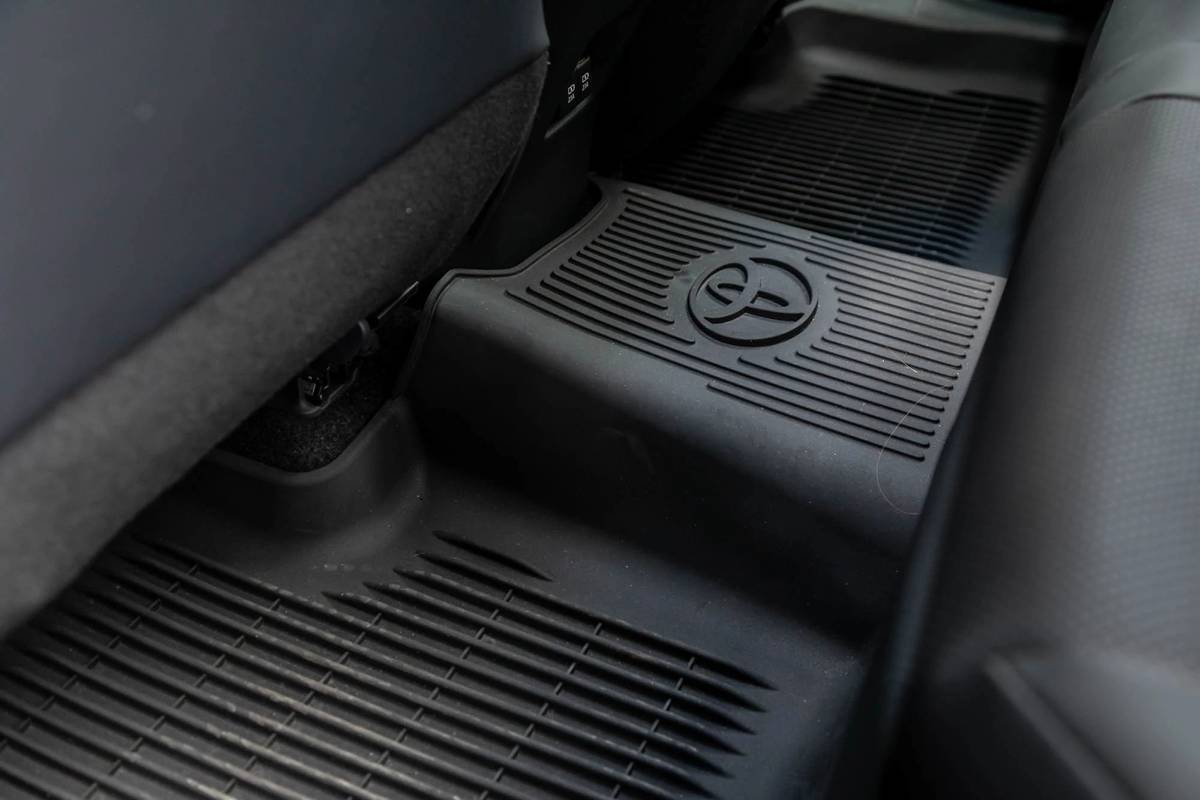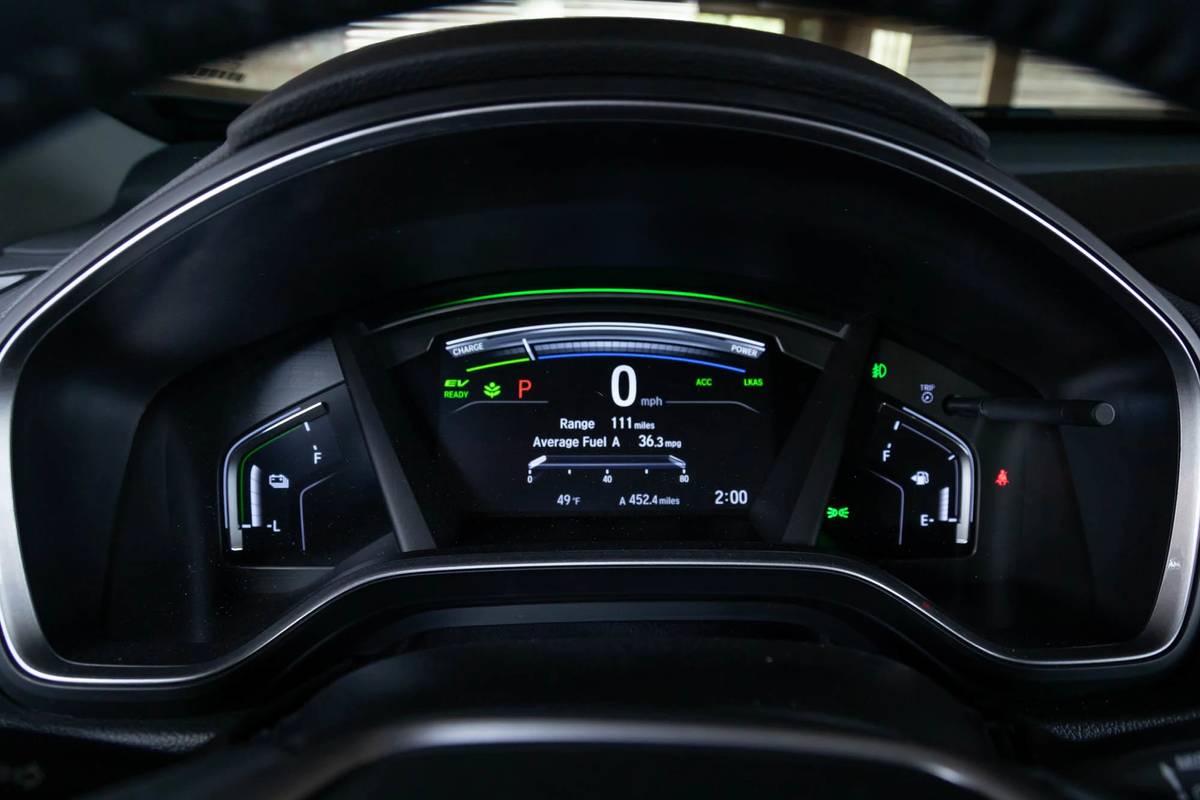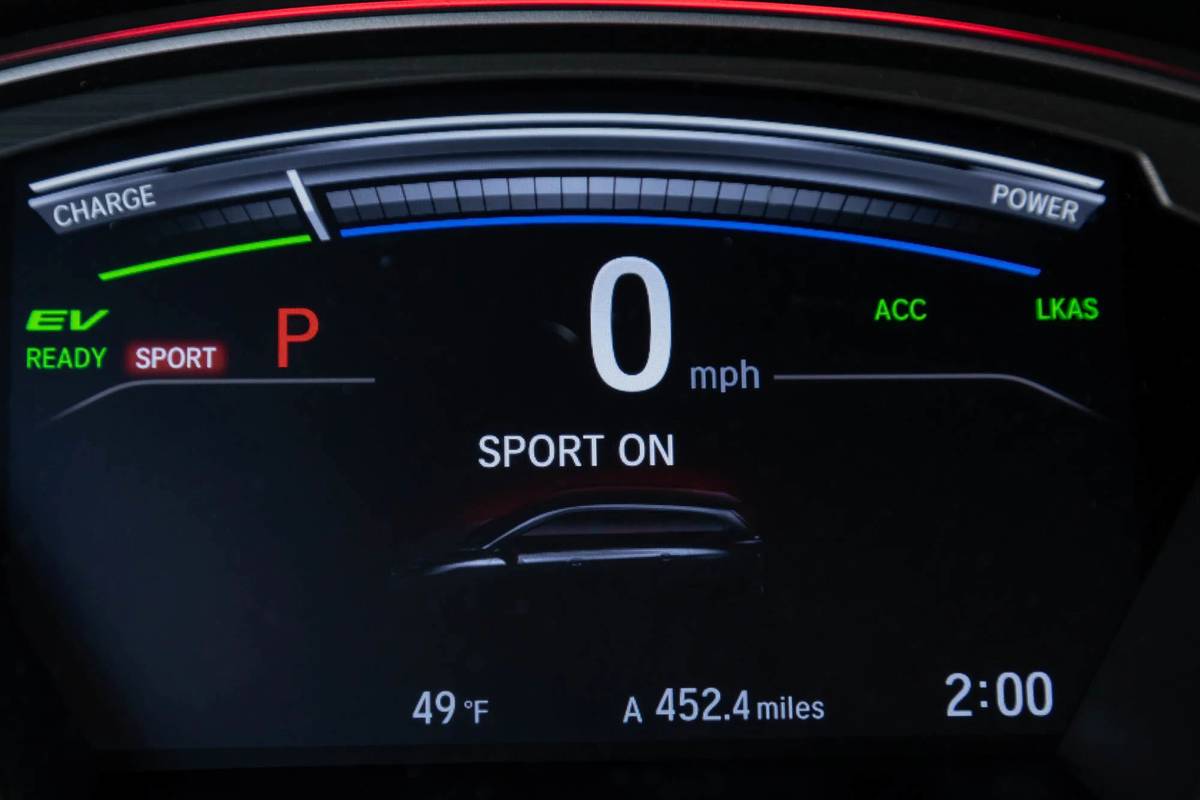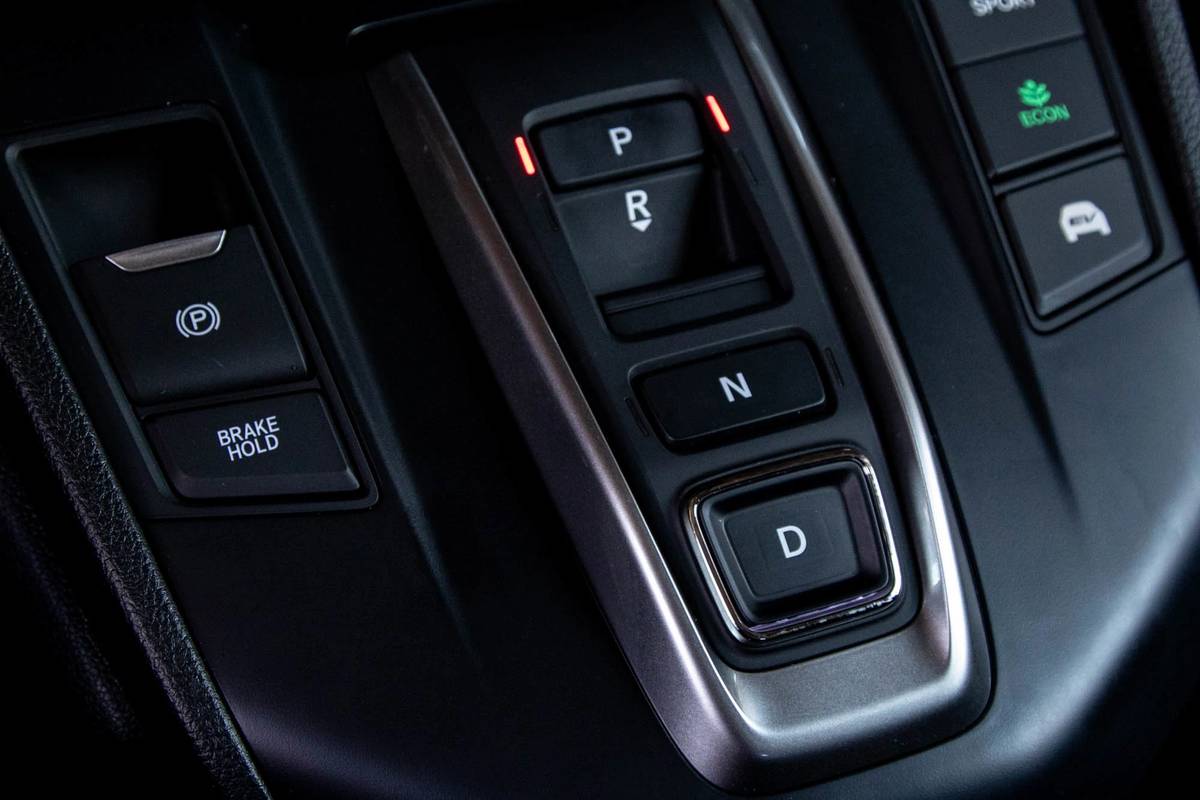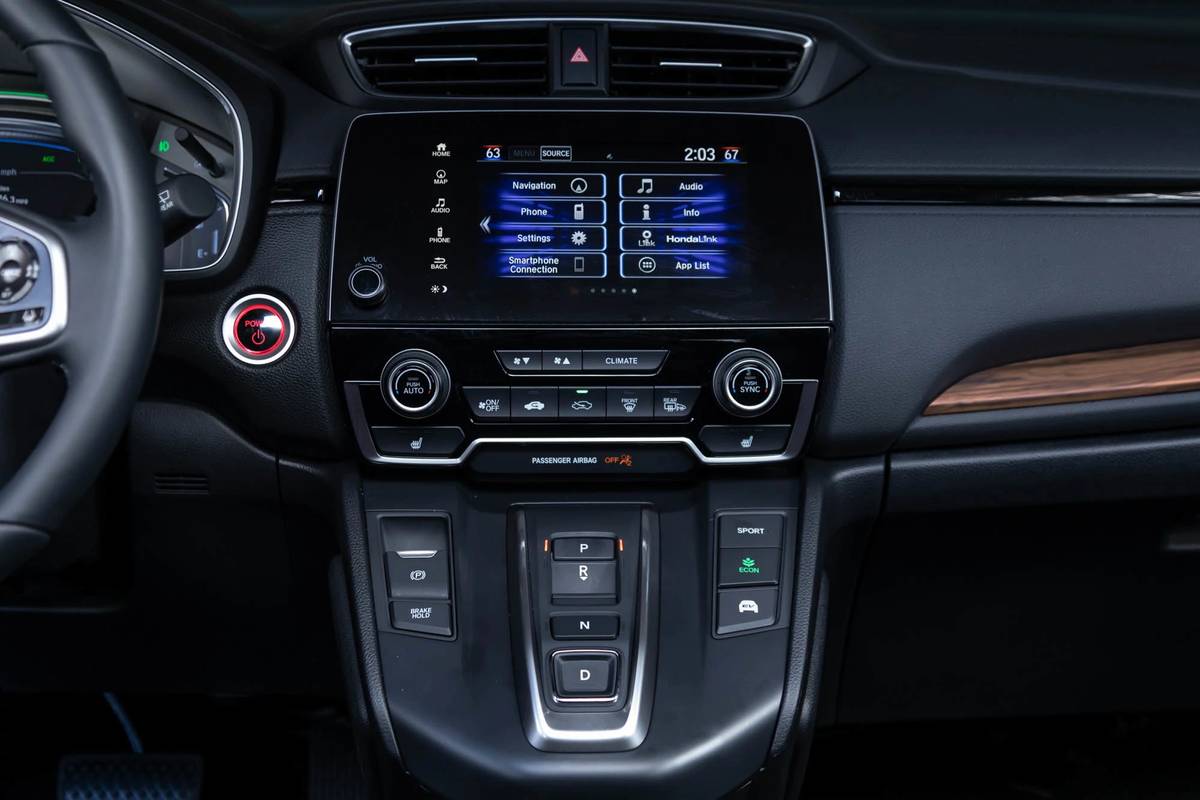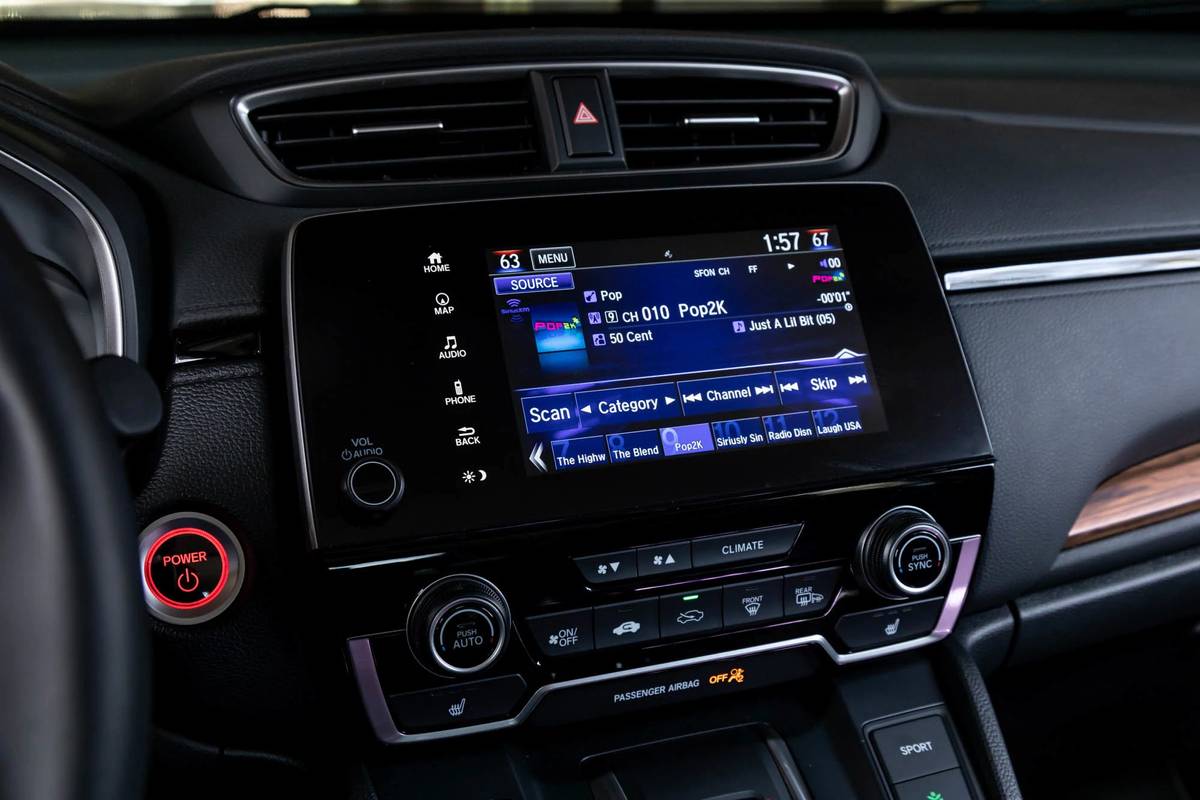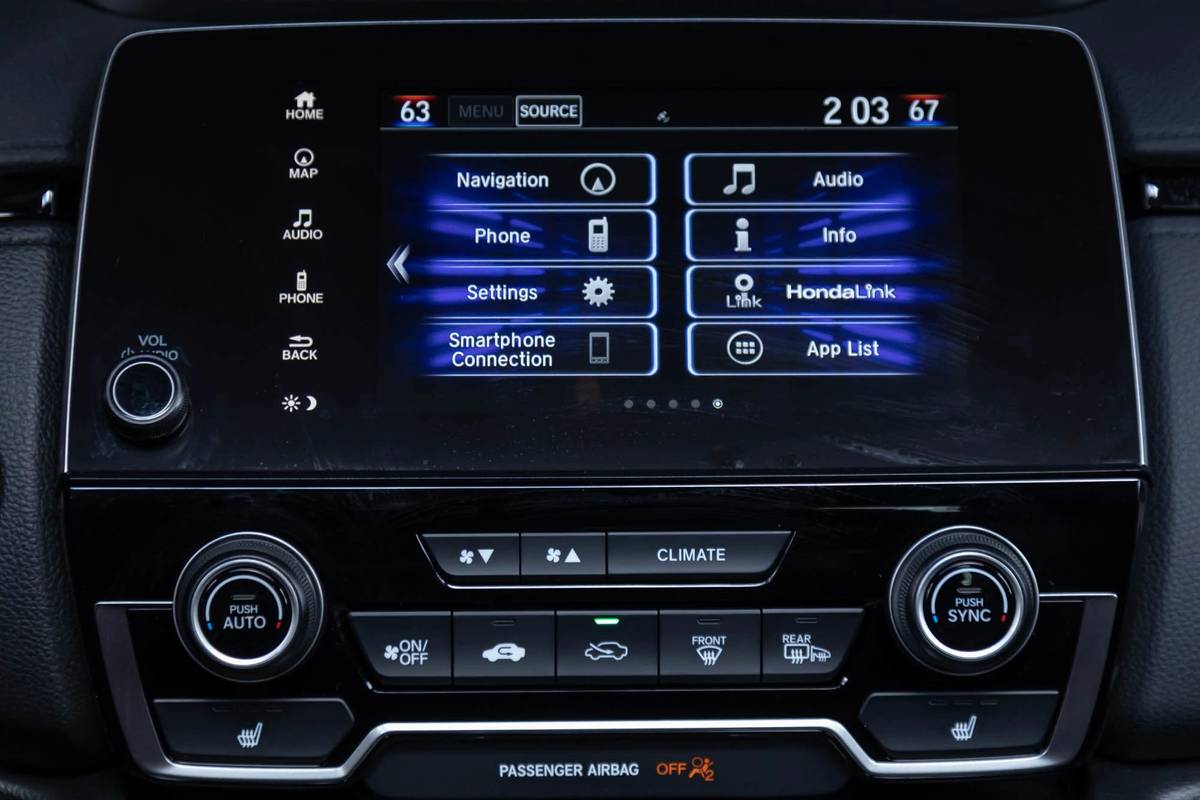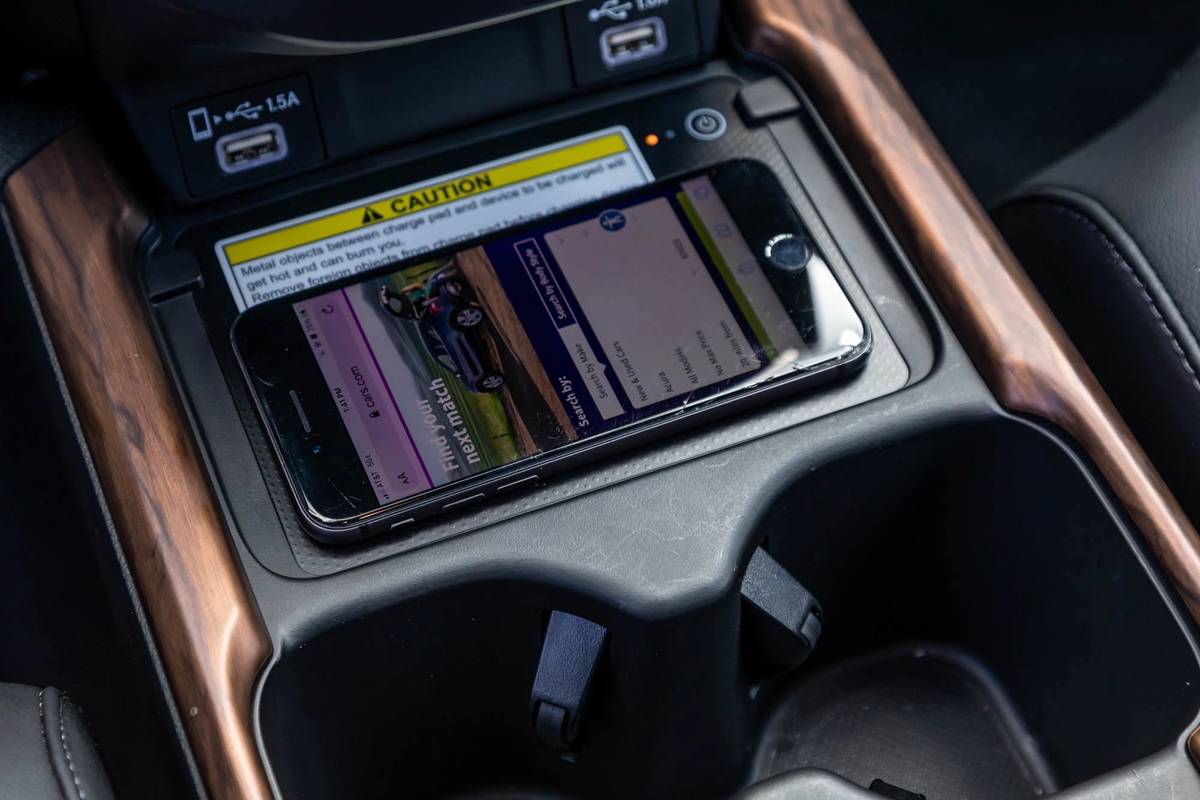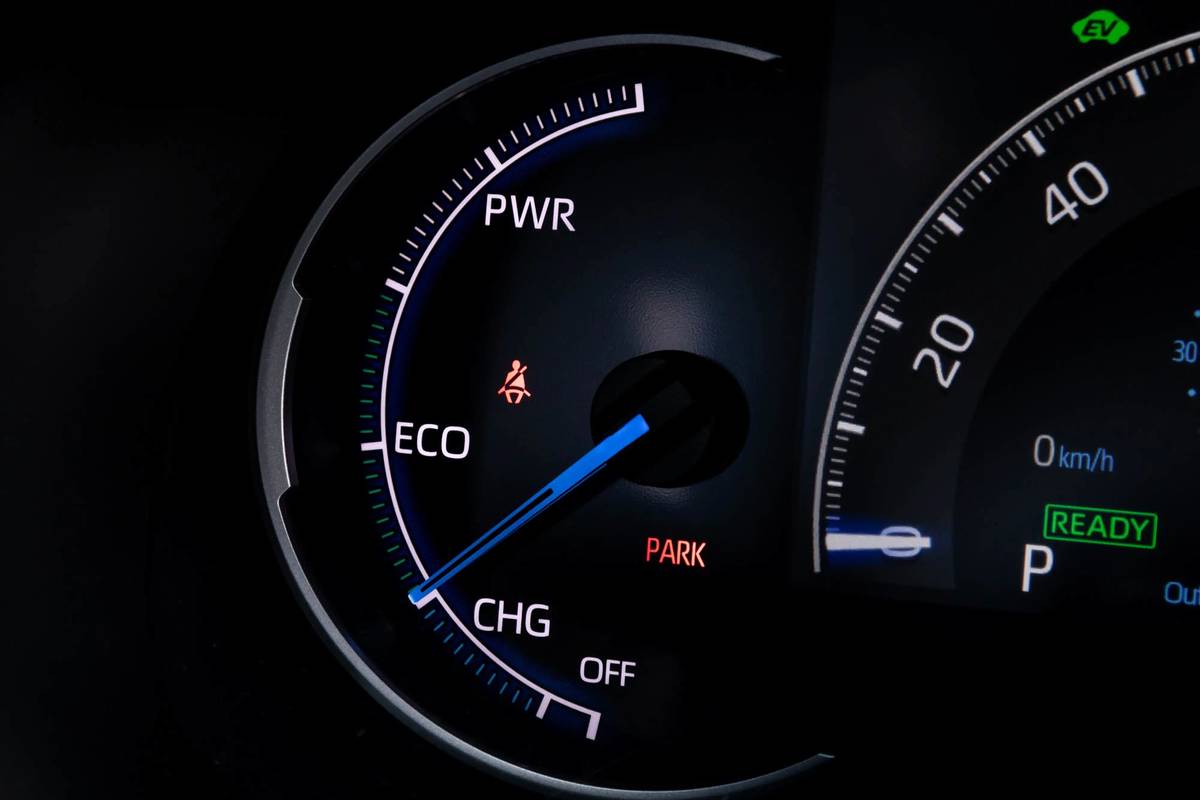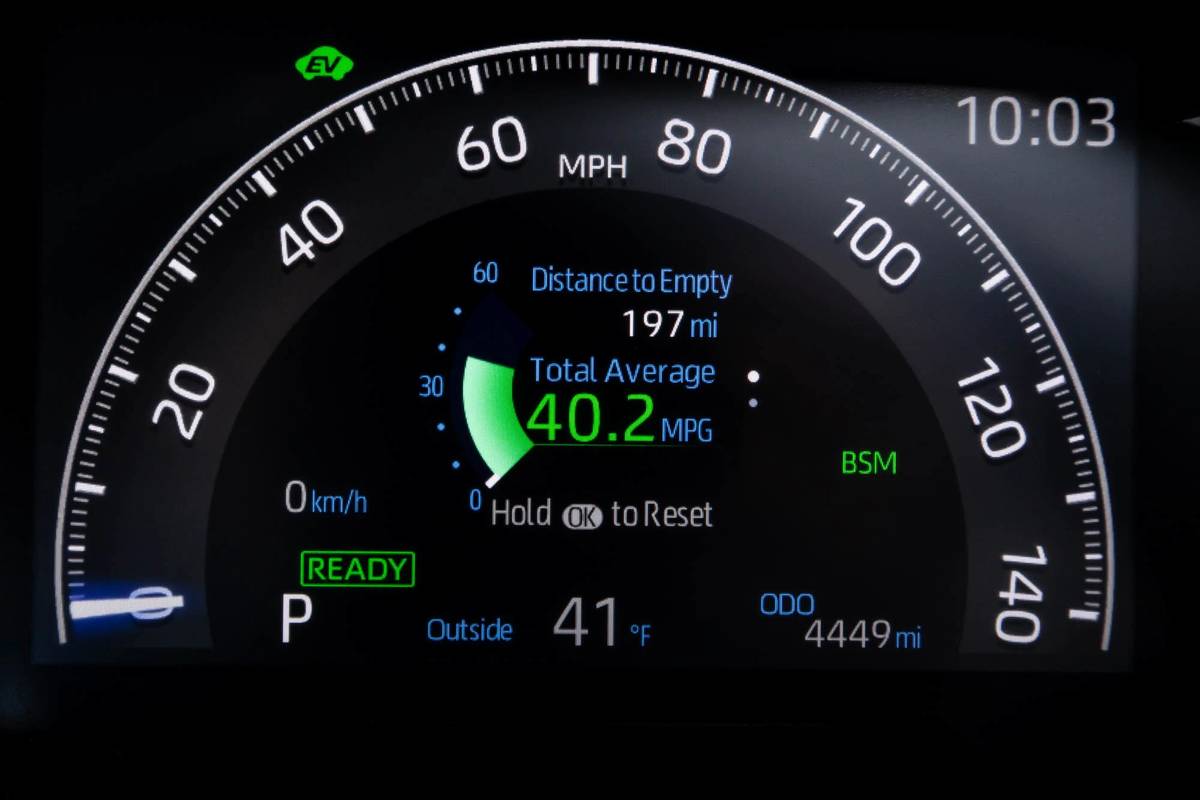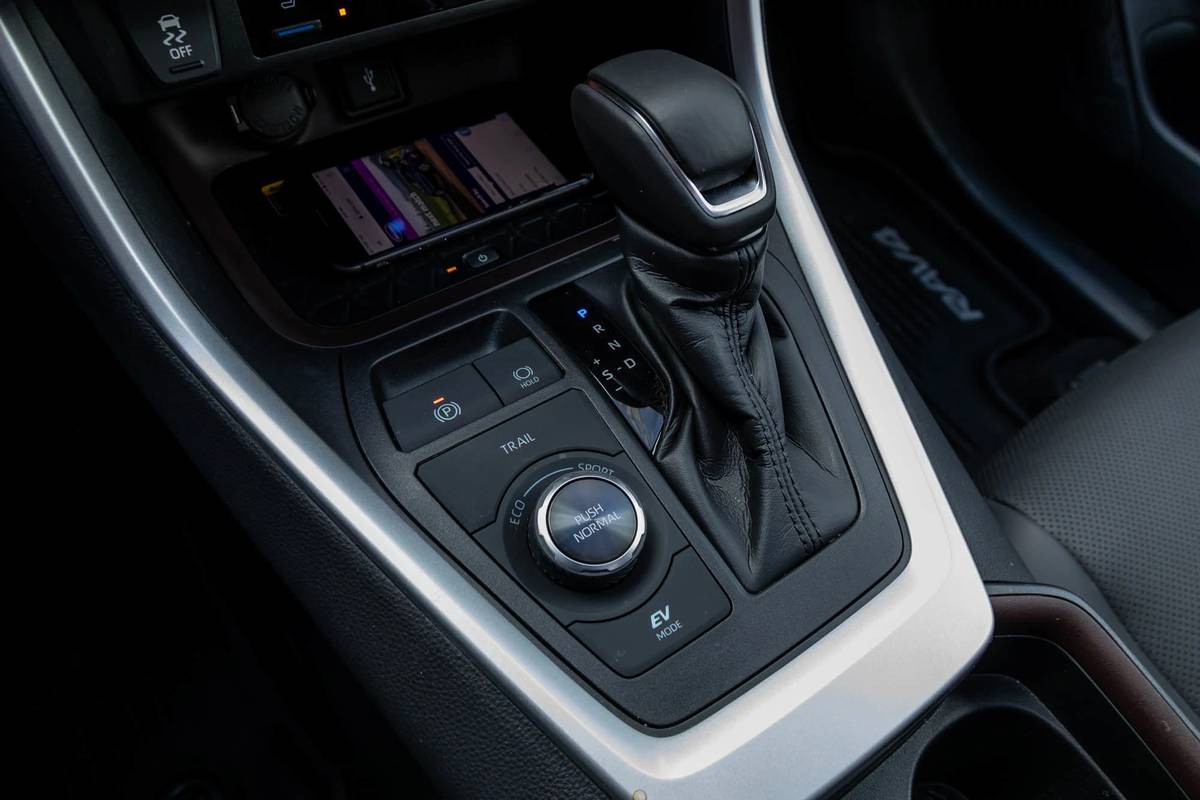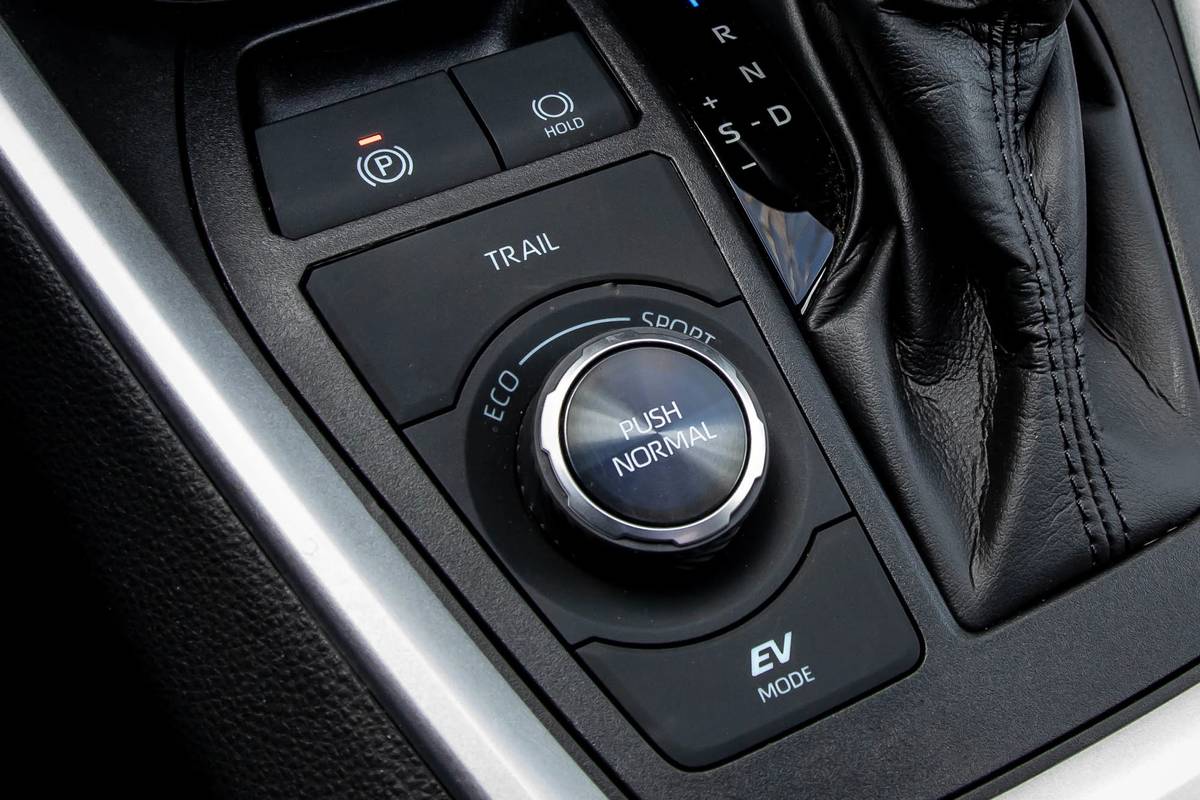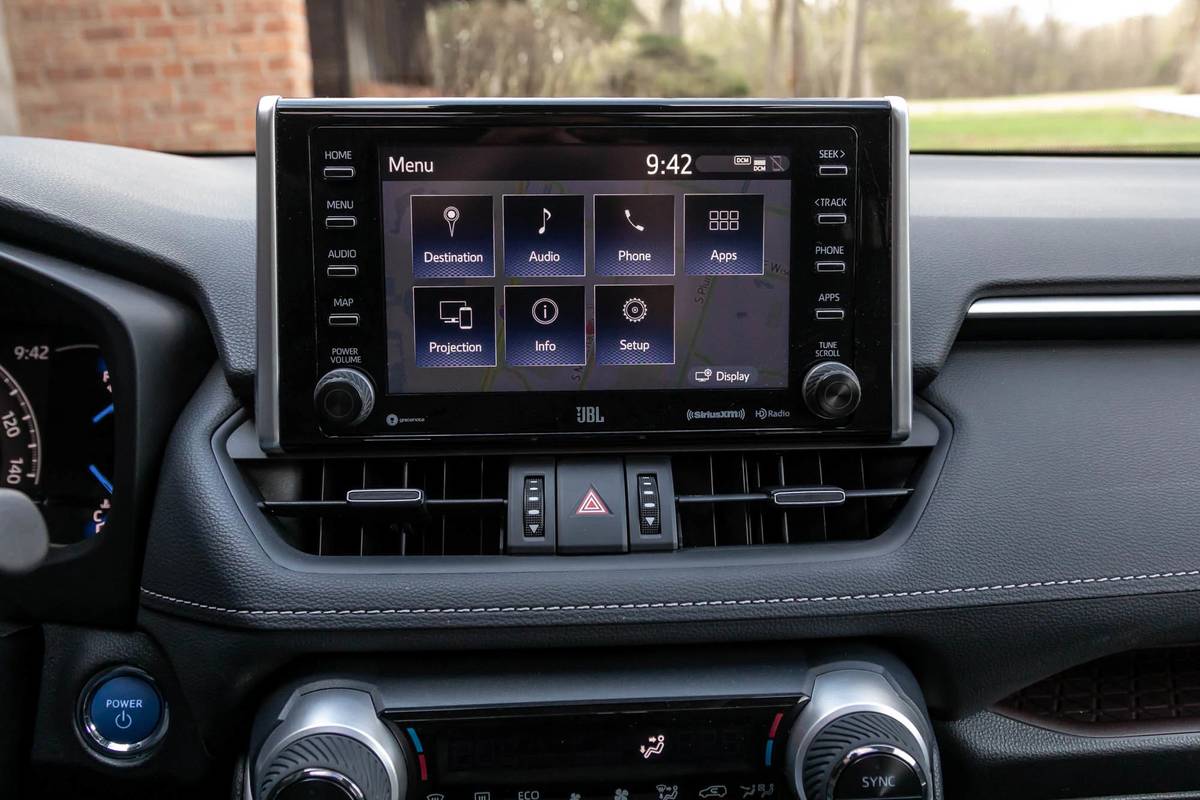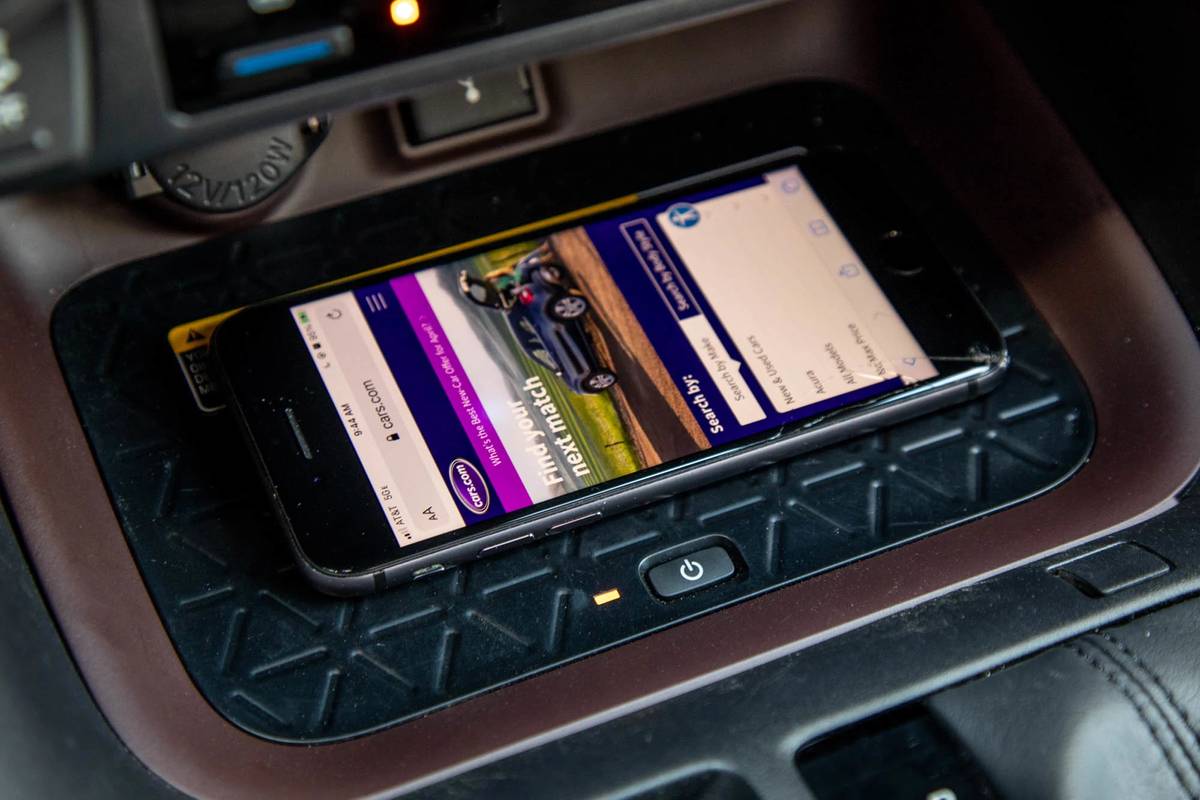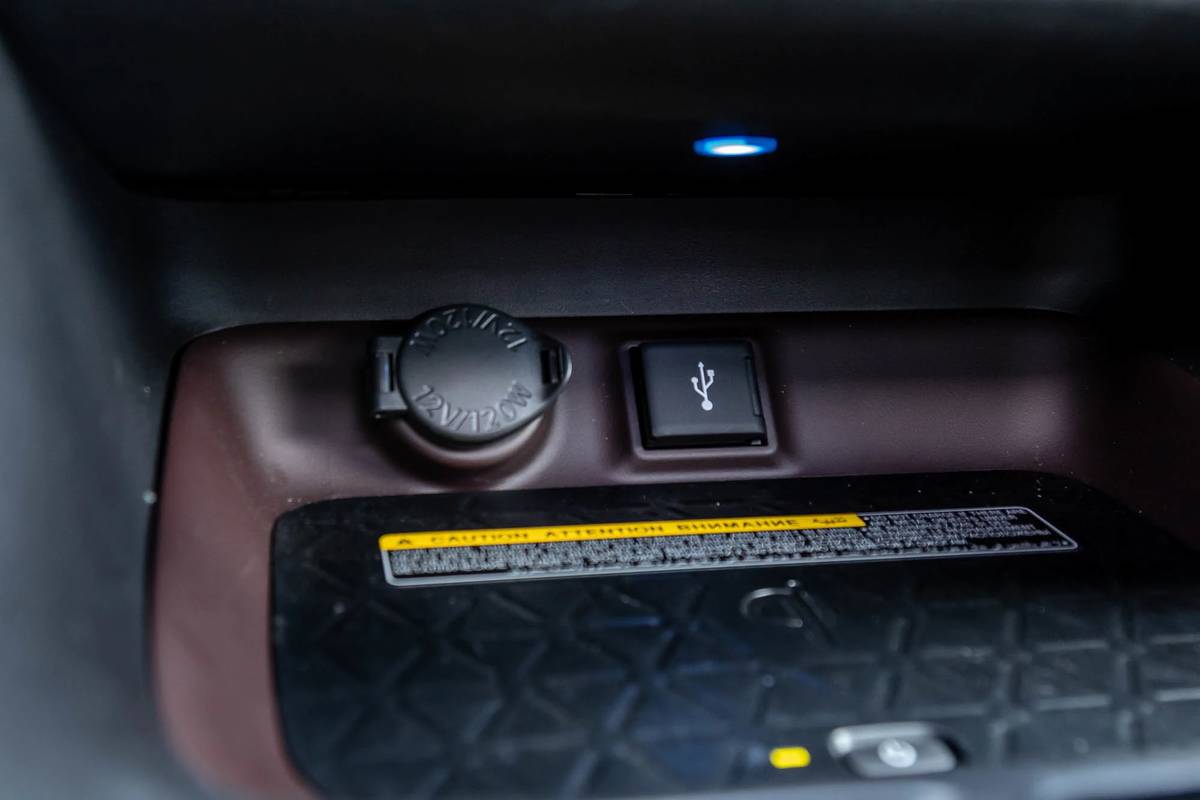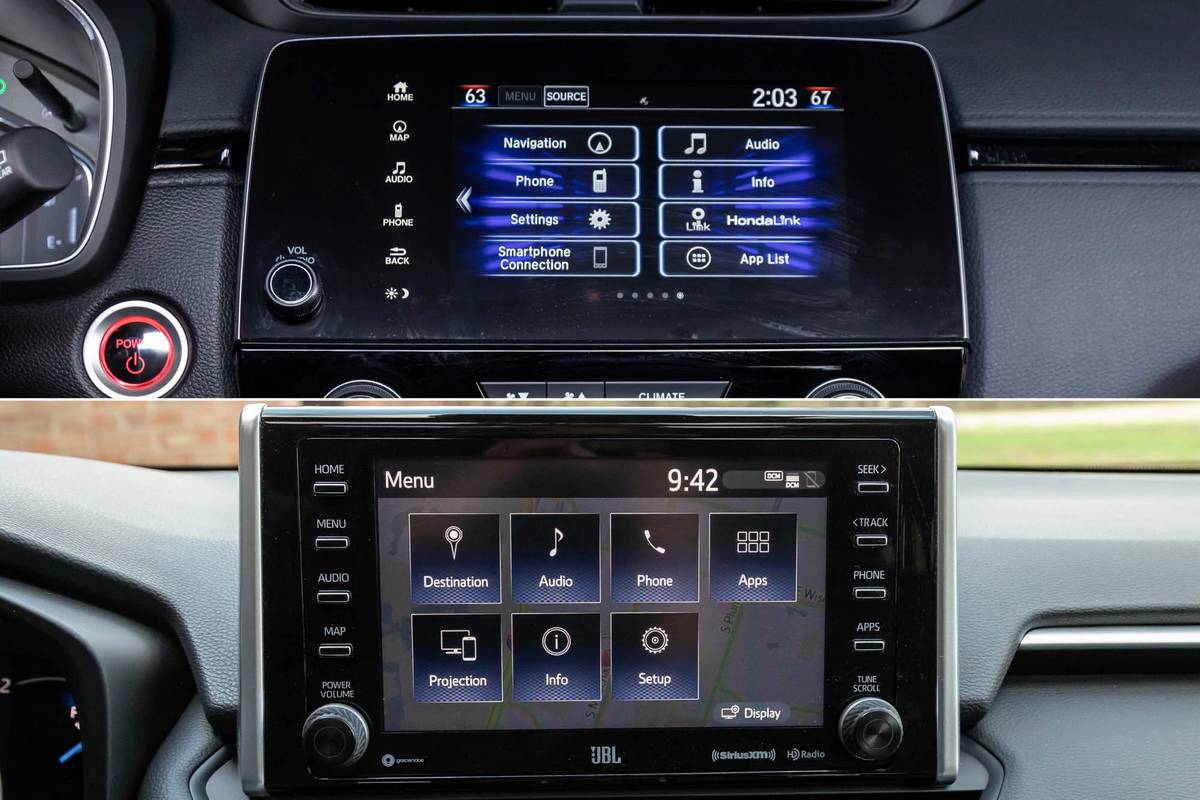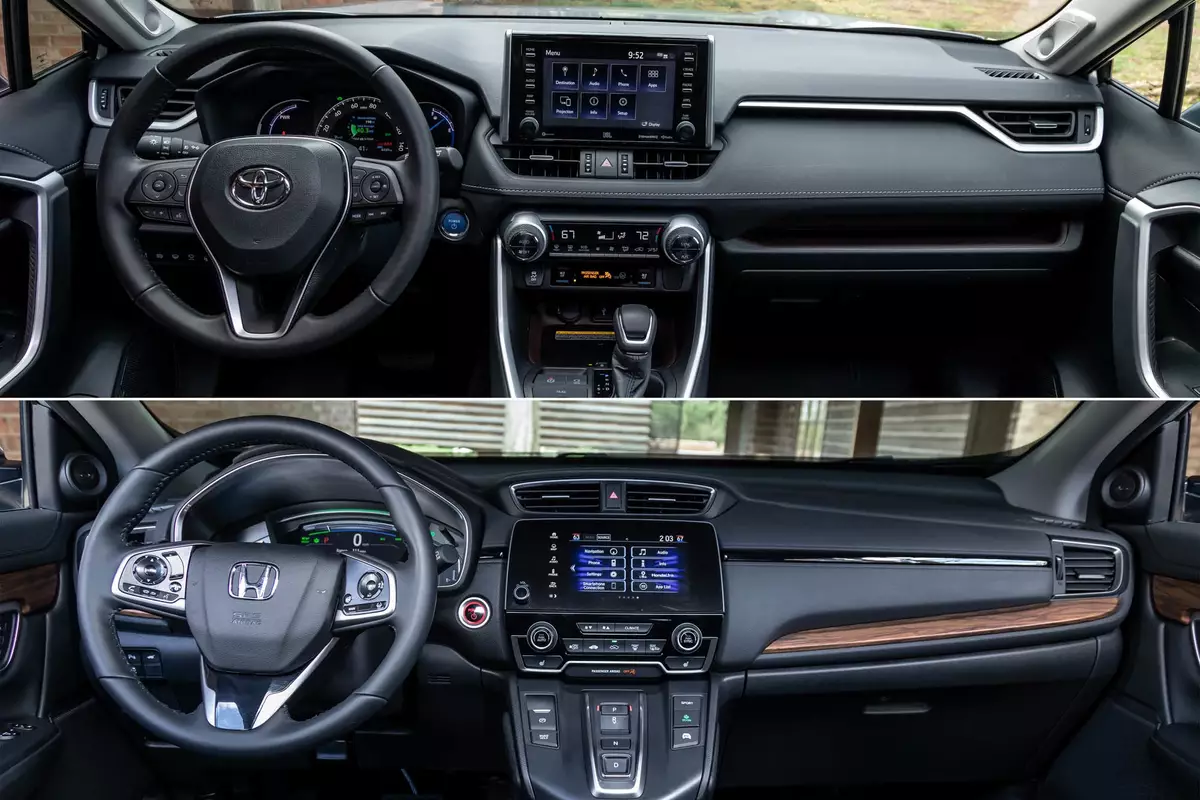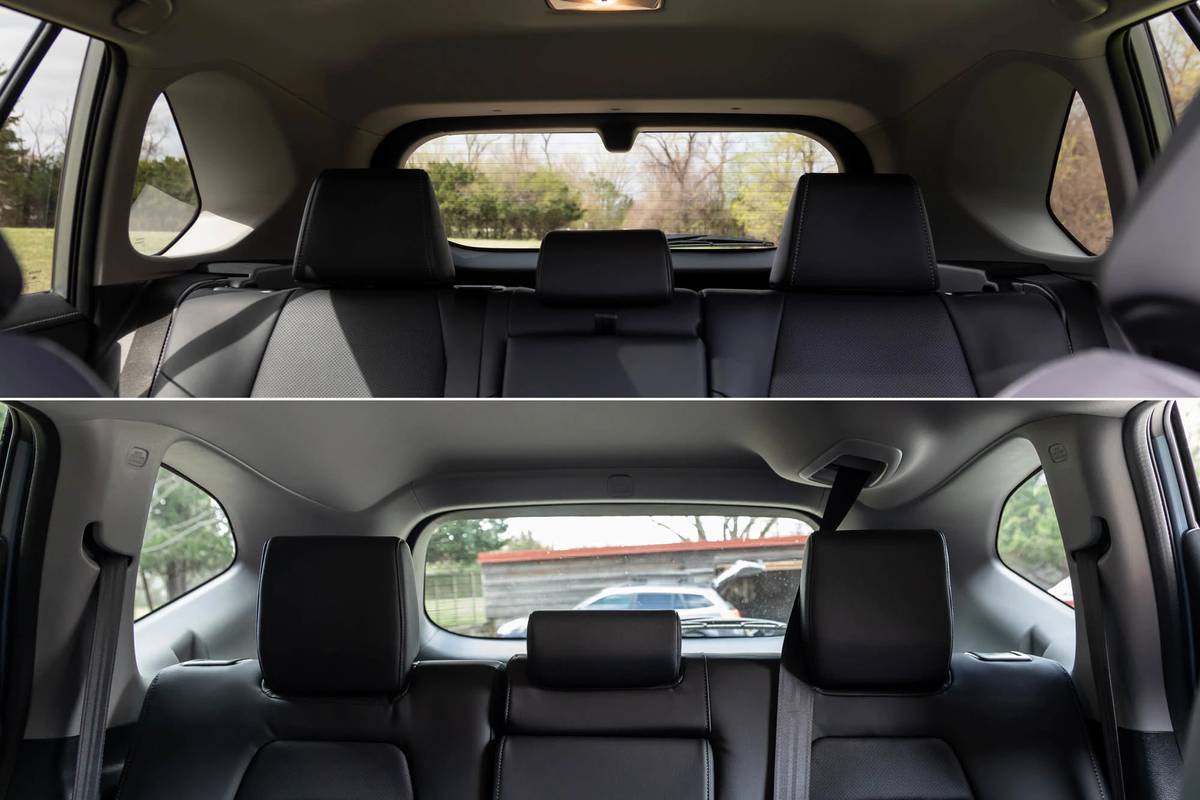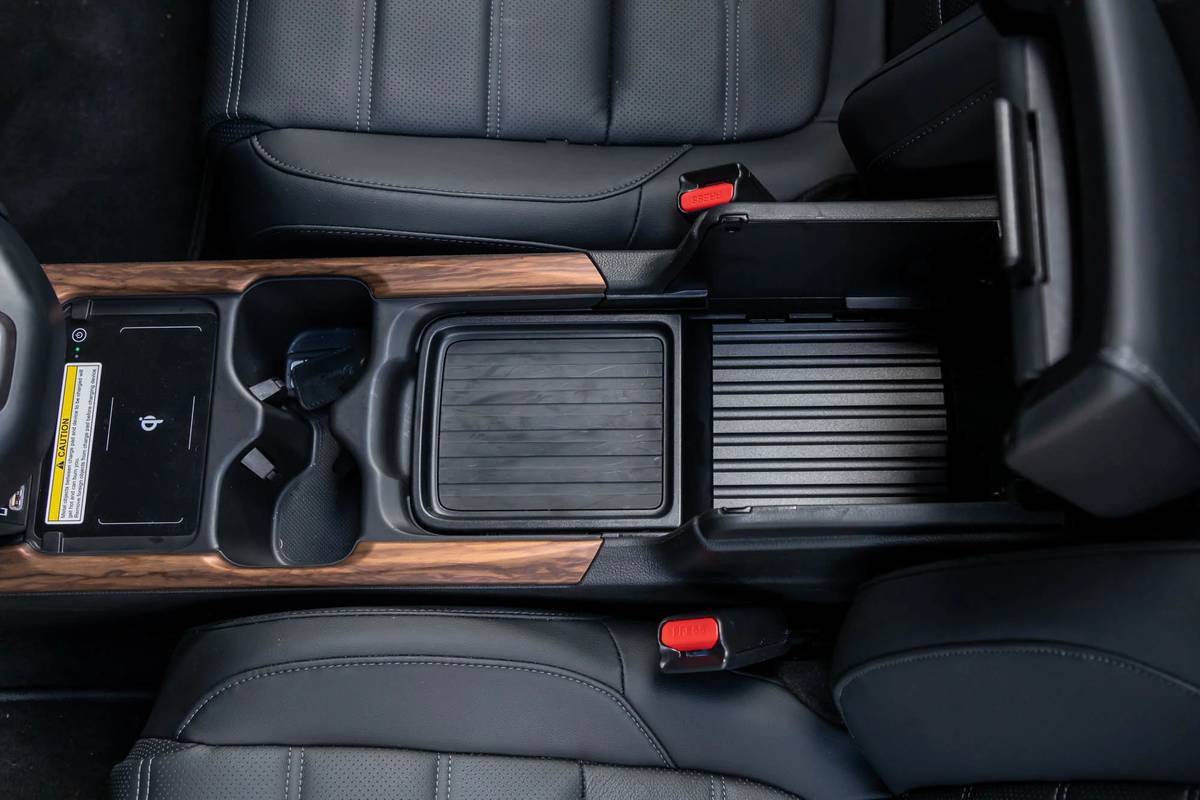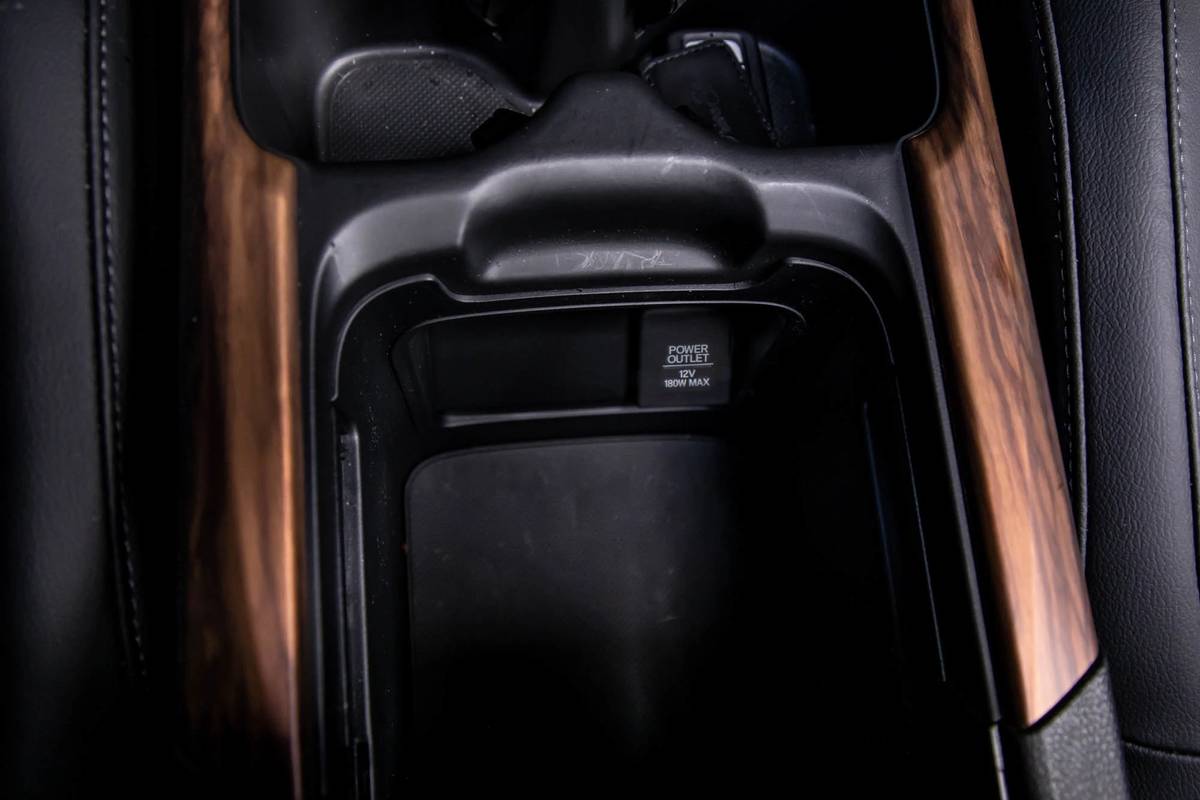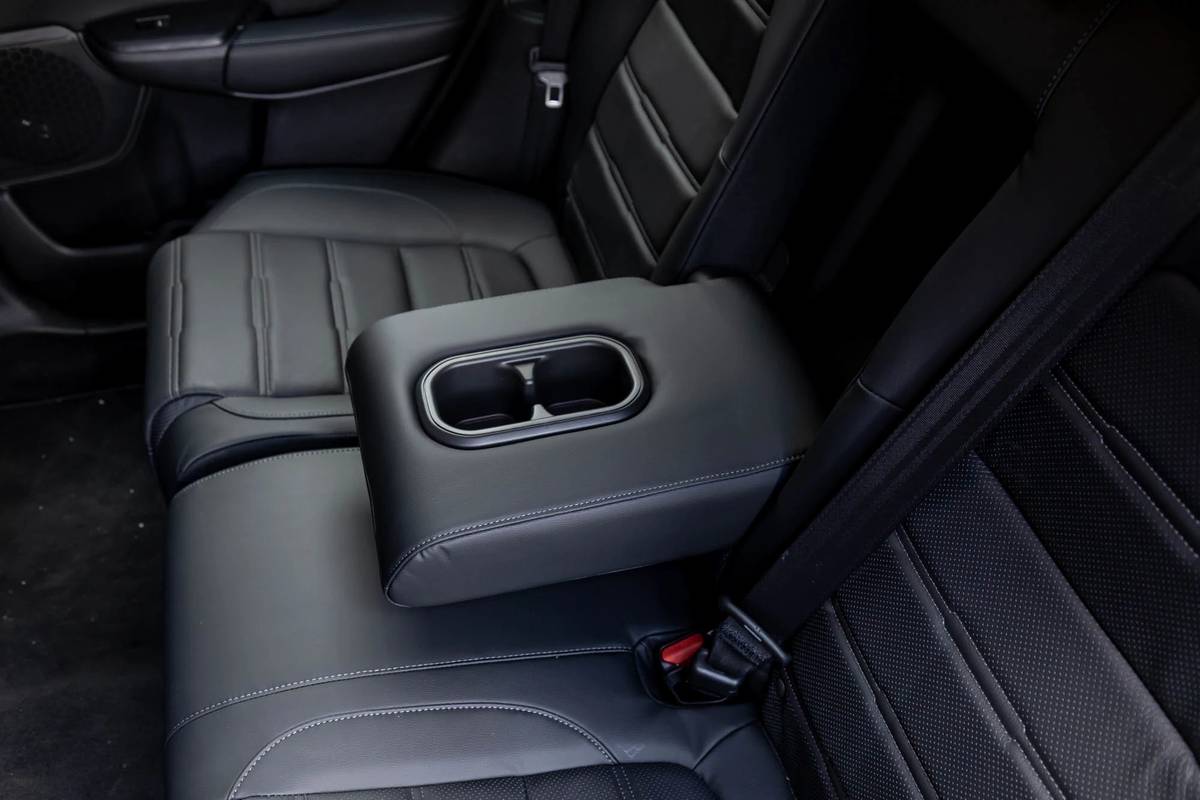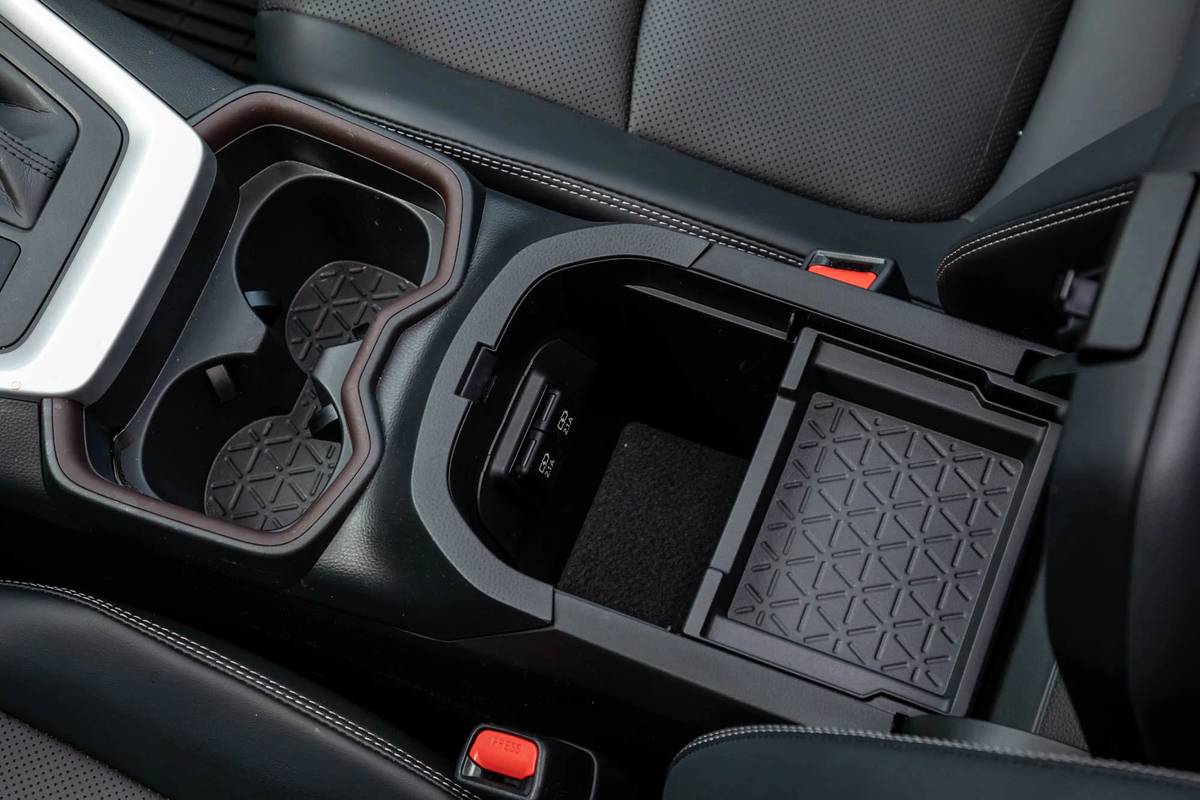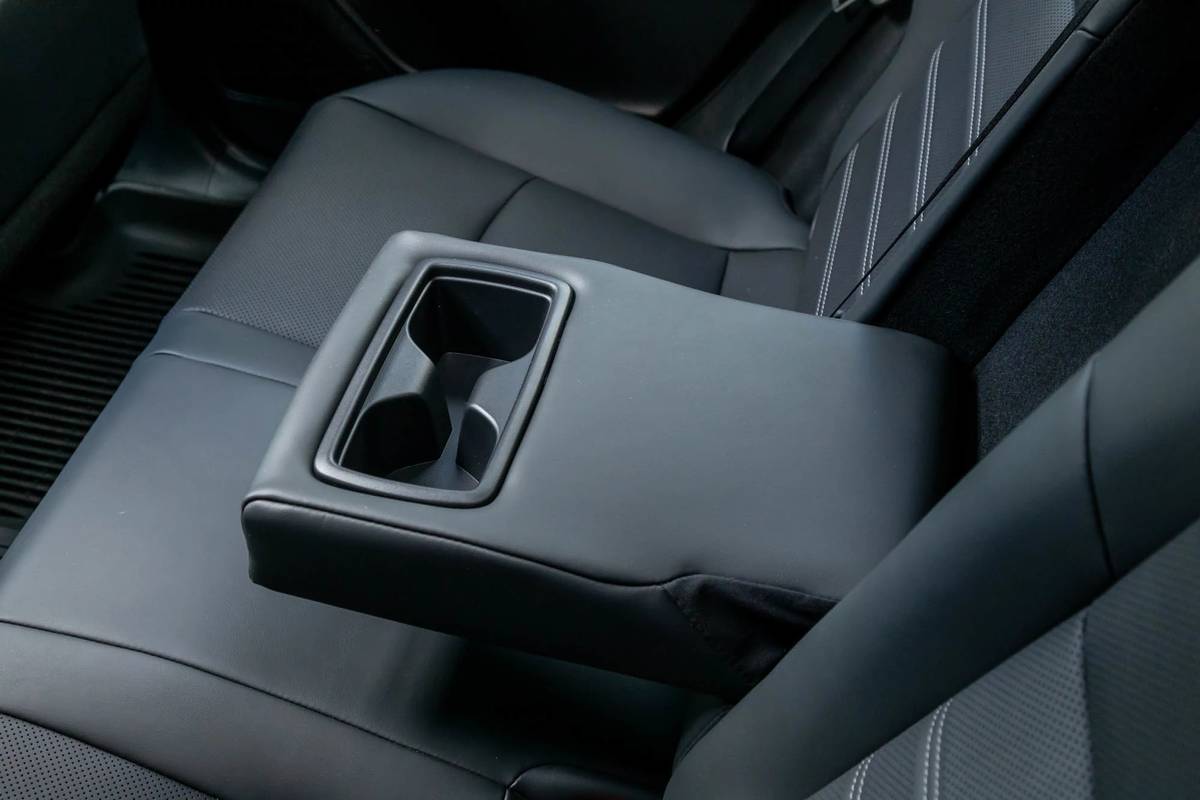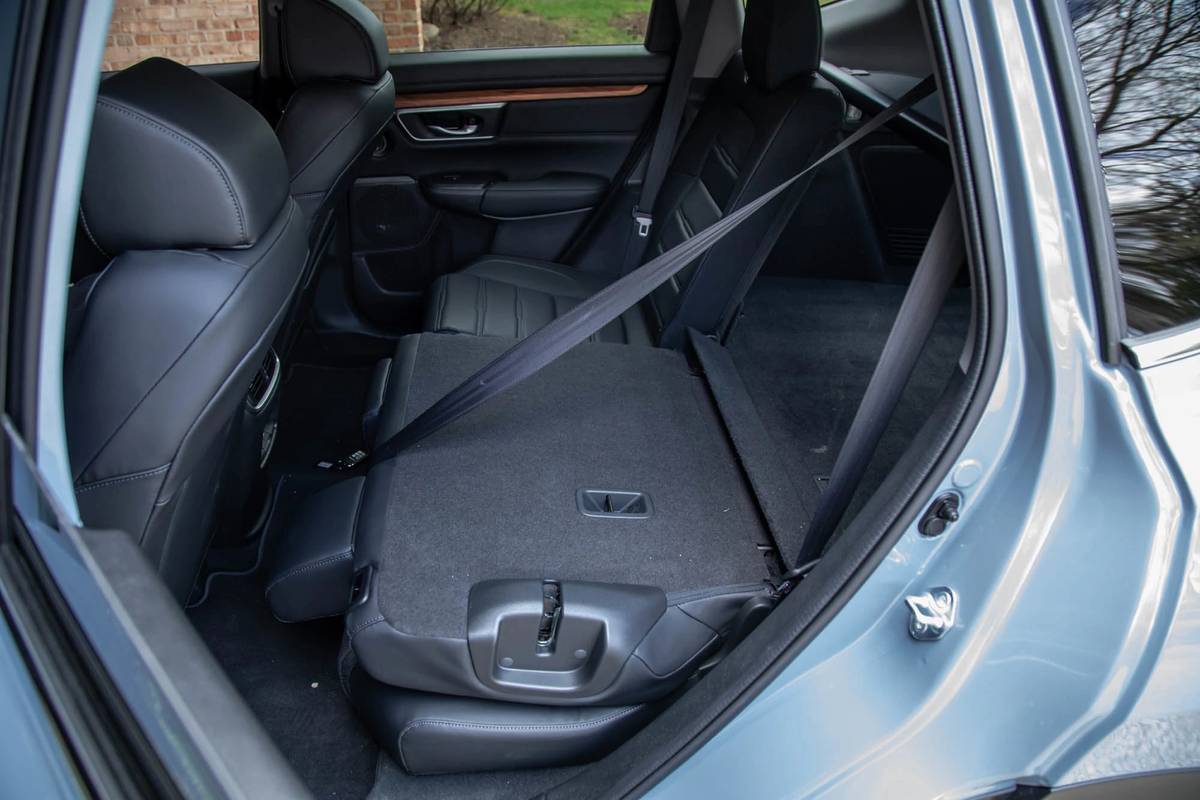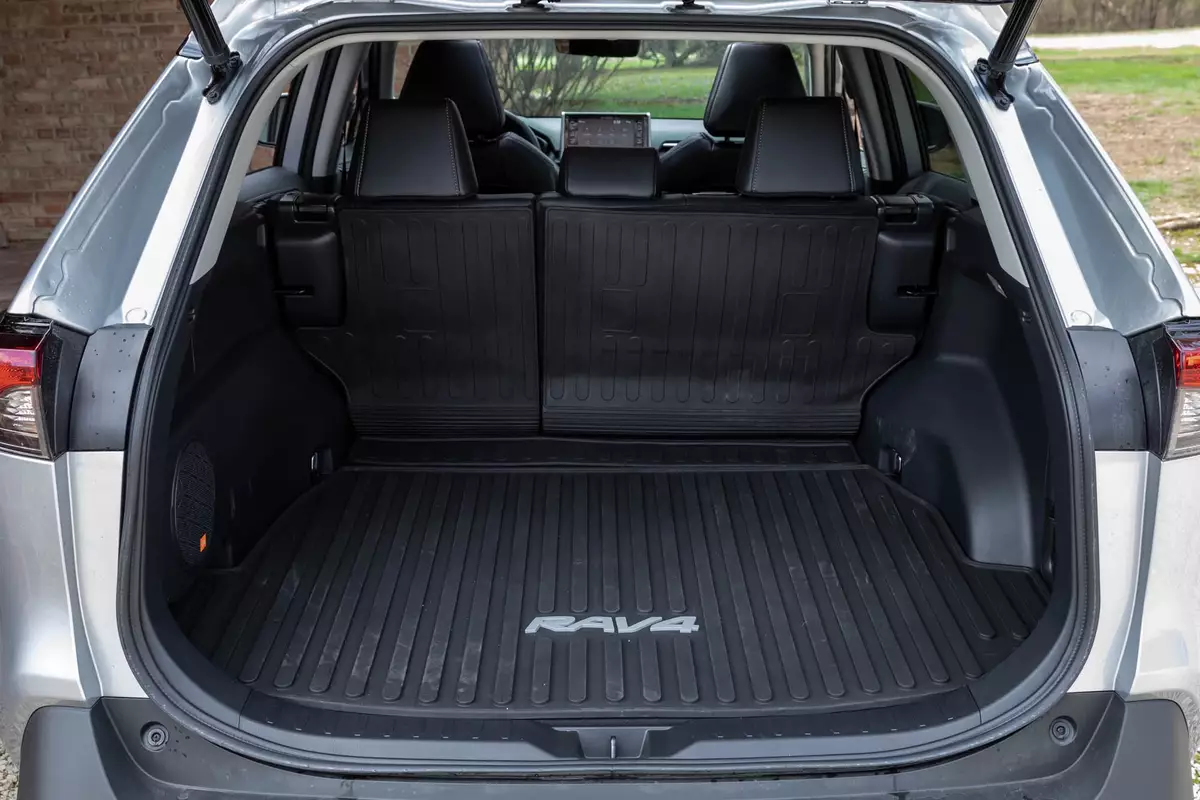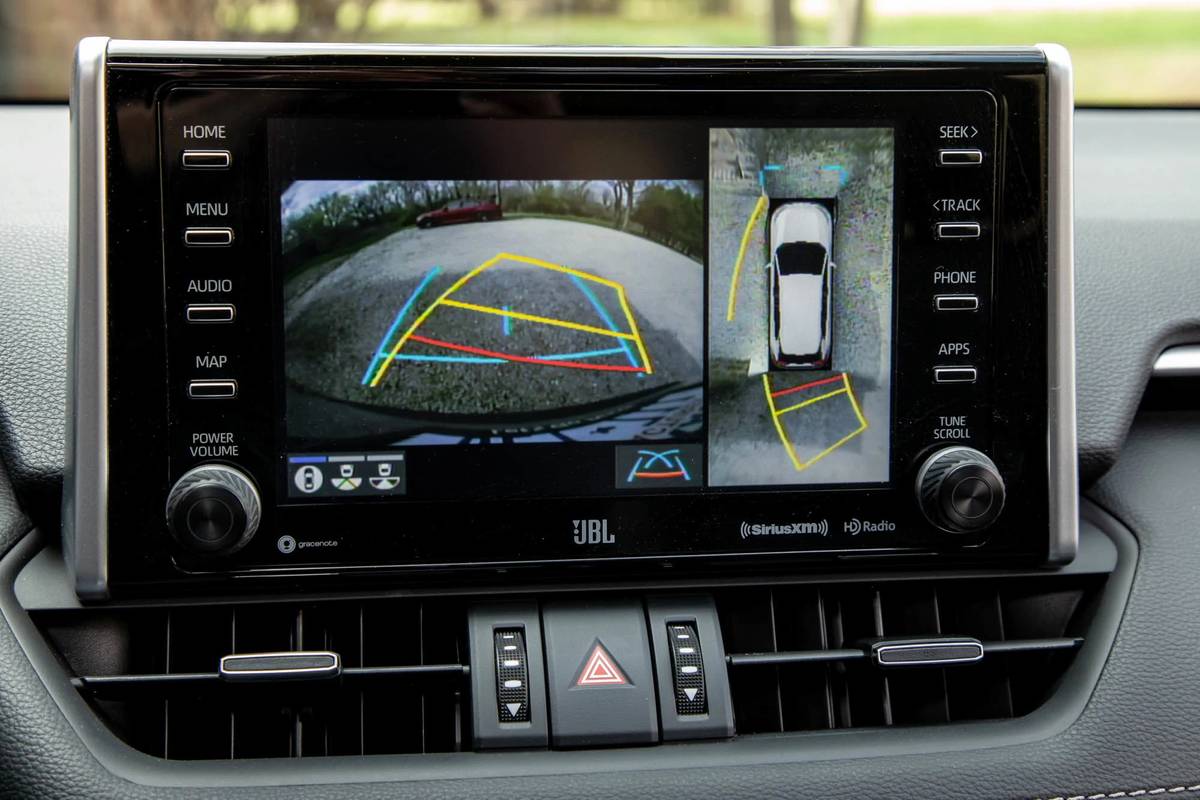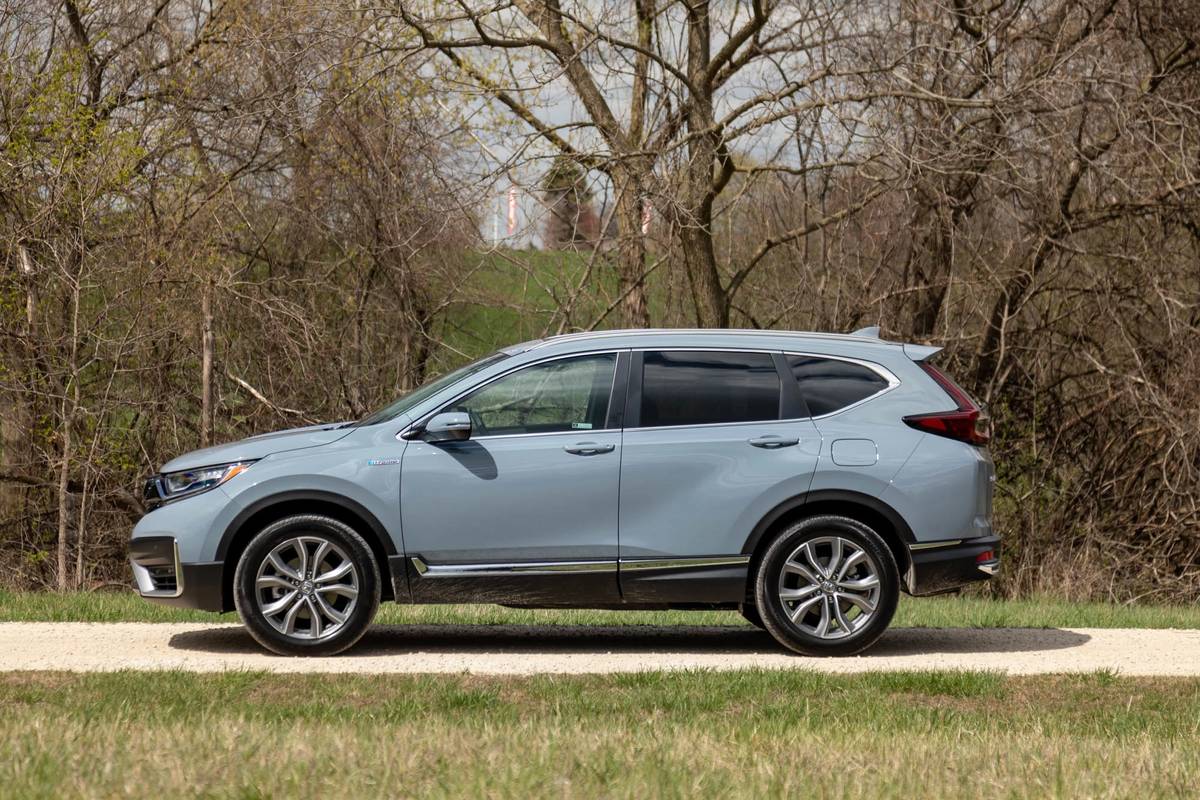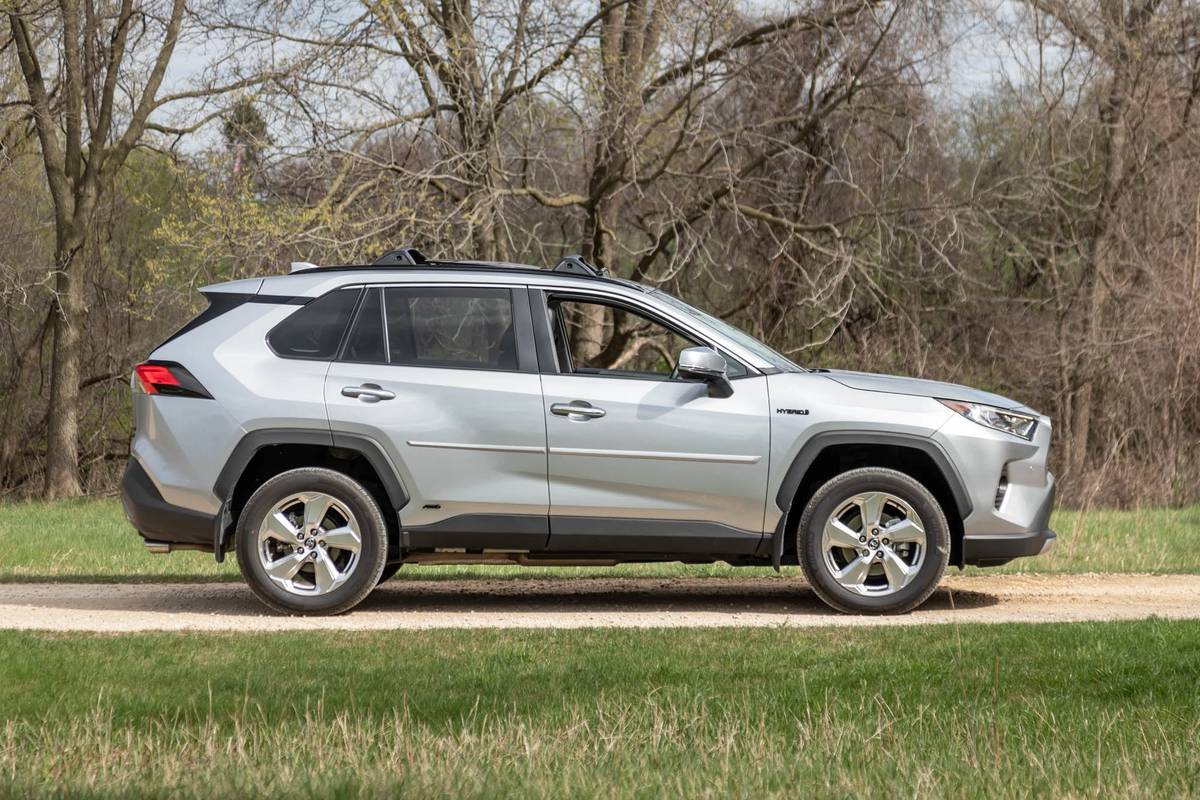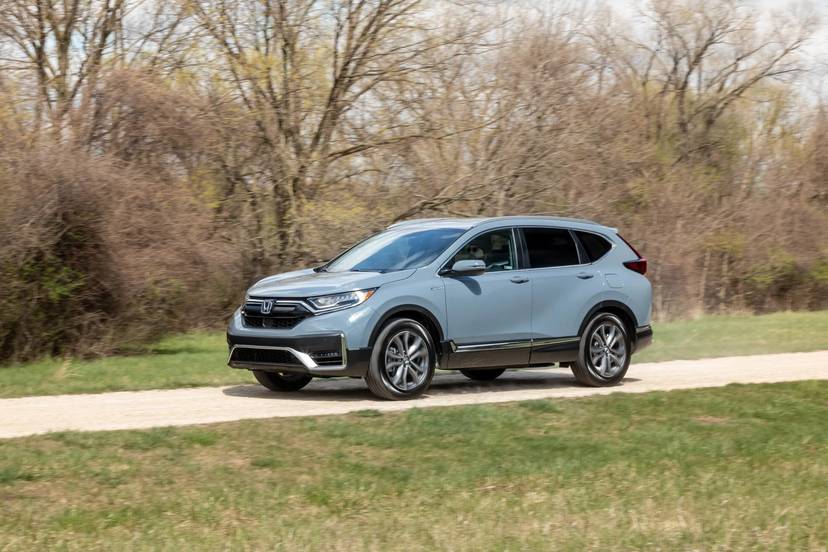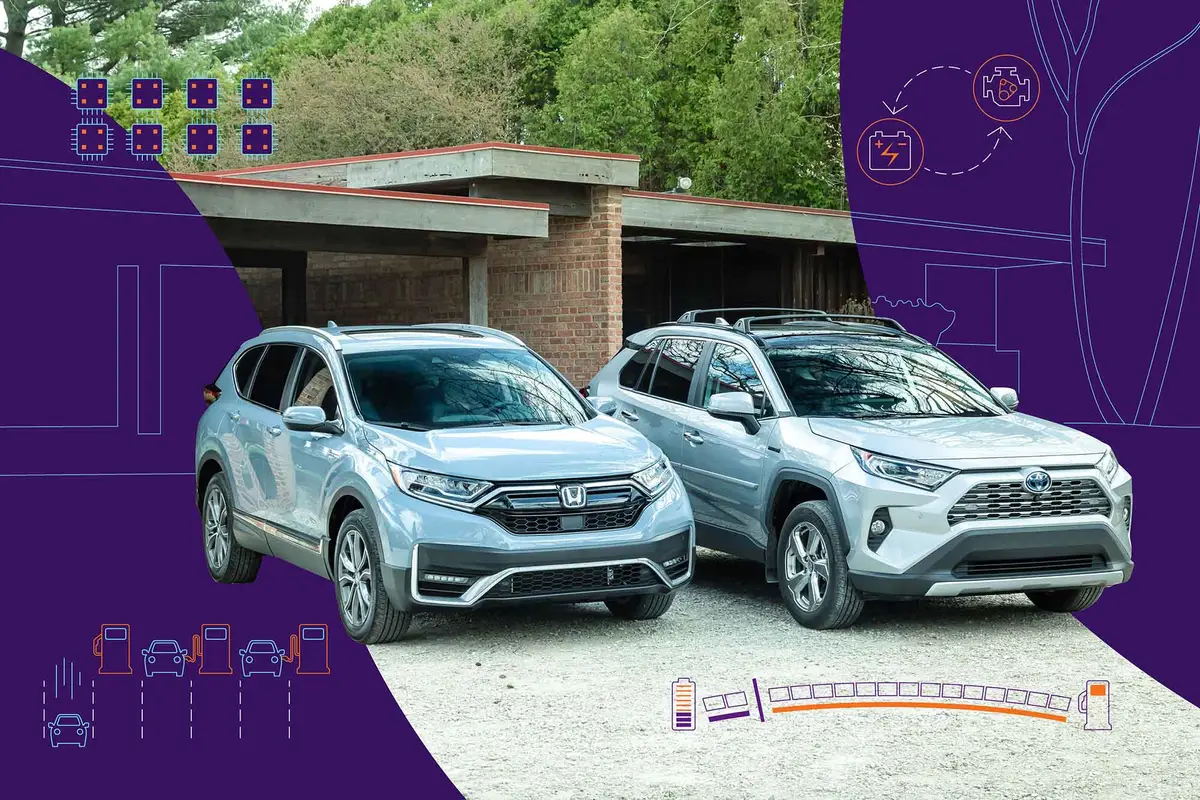
Compact SUVs are almost as popular as hand sanitizer these days. Each month, the Honda CR-V and Toyota RAV4 battle for the slot of compact SUV favorite, and now there are even more to choose from as their lineups have expanded to include hybrid versions.
Related: So You Want to Buy a Hybrid Car: 6 Things to Know
Toyota added a redesigned hybrid to the RAV4’s lineup for 2019 and Honda followed suit for 2020 with the CR-V Hybrid. We tested the fuel-sipping versions of these perennially popular rivals to determine which does it best.
We tested top trim levels of each SUV — a 2021 CR-V Hybrid Touring and a 2021 RAV4 Hybrid Limited — and the two were similarly equipped and priced. Both had all-wheel drive, and the Toyota had a few extra accessories that bumped its price a bit higher. The totals came to $37,920 for the CR-V Hybrid and $42,661 for the RAV4 Hybrid (all prices include destination).
Fellow Cars.com News Editor Brian Normile and I took both vehicles on back-to-back loops in Chicago with tire pressures set to their respective specifications beforehand. We also measured cargo space, evaluated car-seat fitment and scored myriad static and driving categories, from handling and powertrain refinement to seating space and interior quality.
Last, we took the SUVs on a 165-mile drive to evaluate real-world fuel economy. We started in city traffic and drove on a mix of slower suburban roads and faster interstate highways, keeping our climate control preferences consistent and remaining in each car’s normal drive mode — no Eco or electric-only modes allowed.
Here are the 18 categories we judged and which model prevailed in each:
- Powertrain: RAV4 Hybrid
- Fuel economy: RAV4 Hybrid
- Ride quality: CR-V Hybrid
- Braking: RAV4 Hybrid
- Noise abatement: Tie
- Steering and handling: RAV4 Hybrid
- Interior quality: CR-V Hybrid
- Usability of controls: RAV4 Hybrid
- Media and connectivity: RAV4 Hybrid
- Front seats: CR-V Hybrid
- Rear seats: CR-V Hybrid
- Visibility: RAV4 Hybrid
- In-cabin storage: CR-V Hybrid
- Cargo space: Tie
- Car-seat accommodations: CR-V Hybrid
- Safety features: RAV4 Hybrid
- Driver-assist and autonomy features: RAV4 Hybrid
- As-tested value: CR-V Hybrid
Powertrain
Winner: RAV4 Hybrid
On paper, the powertrains have similar output, but they actually perform quite differently. The RAV4 Hybrid is much quicker off the line than the CR-V Hybrid; it’s surprisingly brisk from a stop and stays strong for smooth passing power with linear delivery. The CR-V Hybrid, meanwhile, takes its time to wake up from a stop but eventually spools up steadily for adequate passing power.
The RAV4 Hybrid combines a 2.5-liter inline-four-cylinder engine with two electric motor-generators up front, a third motor on the rear axle for the standard all-wheel drive and a lithium-ion battery pack good for 219 total horsepower. Rather than a conventional step-gear transmission or belt-and-pulley continuously variable automatic, Toyota hybrids have long used what the company calls a power-split device, a system of gears that works with the electric motors to provide continuously variable gear ratios.
The CR-V Hybrid teams a 2.0-liter gasoline engine with an electric drive motor-generator, another electric generator and a lithium-ion battery pack and has a total system output of 212 hp. It also operates without a conventional automatic transmission and, arguably, with no transmission at all. It operates as a series hybrid at lower speeds, powering the electric motor with the battery and/or generator; at higher speeds, the engine drives the wheels directly with no variability in gear ratios. Unlike the RAV4 Hybrid, this model’s standard all-wheel drive is essentially the same as the non-hybrid’s, using no additional electric motor.
Fuel Economy
Winner: RAV4 Hybrid
This is an important category for hybrid shoppers and the RAV4 Hybrid came out pretty far ahead of the CR-V. During our drive, it returned 44.2 mpg, which is an average of the mileage we calculated at the pump and the trip computer’s readout. The CR-V lagged behind with 40.9 mpg.
The RAV4 Hybrid is EPA-rated at 41/38/40 mpg city/highway/combined for the base L trim level, much higher than the non-hybrid base AWD L’s rating of 27/33/29 mpg. Meanwhile, the CR-V Hybrid answers back with mpg ratings that are pretty close: It’s EPA-rated at 40/35/38 mpg compared with the AWD non-hybrid model’s 27/32/29 mpg rating.
Ride Quality
Winner: CR-V Hybrid
The two SUVs differ quite a bit in ride quality, with the CR-V earning more points for its comfort bias. It demonstrated more road isolation than the RAV4 and maintained better composure over bumps and rough sections of pavement. The RAV4, meanwhile, had a firmer ride and was more easily unsettled over bumps than the CR-V, with a noticeable amount of impact harshness.
Braking
Winner: RAV4 Hybrid
Hybrids use a regenerative braking system that seldom feels normal, but the RAV4 did the best job of disguising its setup. While its brake pedal did feel firmer than a non-hybrid vehicle’s, braking action was more linear than in the CR-V and the brakes more reactive overall. The CR-V’s setup suffered from a mushier feel, with more effort and pedal travel required to stop.
Noise Abatement
Winner: Tie
There’s nothing quiet about either of these SUVs. They each have a gruff, unrefined-sounding engine when it kicks in (especially the RAV4) as well as under brisk acceleration (especially the CR-V). Transmission drone is another loud point. Lastly, they both also suffer from a good deal of wind noise, although road noise isn’t as much of an issue.
Steering and Handling
Winner: RAV4 Hybrid
The RAV4 is the clear winner for handling. With tighter suspension tuning, it remains more composed in corners and has an edge over the CR-V for maneuverability in tight turns and parking lots. Its steering is more communicative than the CR-V’s, with a firmer, more direct feel. The CR-V, on the other hand, drove like a bigger vehicle than it is, with numb, disconnected steering and an overall less precise handling feel than the RAV4.
Interior Quality
Winner: CR-V Hybrid
The Honda gets the nod here thanks to an attractive cabin design and higher-quality materials, with convincing fake wood trim and real leather classing up the cabin. Both models have enough soft padding where it’s appropriate, and we did appreciate the RAV4’s sturdy rubberized control knobs — an unexpected extra touch of quality.
Usability of Controls
Winner: RAV4 Hybrid
While the CR-V’s touchscreen sits high on the dash and looks slick, looks are deceiving; it lost this judging category for its clumsy, slow response time and confusing menu structure. An extra point came off for its lack of a tuning knob. Still, we did appreciate the CR-V’s clear, simple gauge cluster — a stark contrast to the RAV4’s complicated screen.
Conversely, the RAV4’s touchscreen system looks much more dated but is a lot easier to use, with more straightforward menus and touch points that register the first time. More physical controls, like a tuning knob, also helped it earn the win. Its gauge cluster, however, is an overwhelming mess, with myriad small, colorful numbers and letters fighting for a small piece of real estate.
Media and Connectivity
Winner: RAV4 Hybrid
This was a close one. Both vehicles have wireless charging as well as wired Apple CarPlay and Android Auto. The RAV4 earned one extra point for its additional USB port; it has five versus the CR-V’s four.
Front Seats
Winner: CR-V Hybrid
This was another close call, with the CR-V eking out a win by one point thanks to its power passenger seat adjustments (they’re manual in the RAV4) as well as cushy seats and narrower center console, which gave the taller of the two testers a bit more room. Both models have a heated steering wheel and heated front seats; the Toyota adds ventilated front seats.
Rear Seats
Winner: CR-V Hybrid
Interior materials quality takes a dip in both backseats, and they both have less cushioning and bolstering than the front seats, but the CR-V earned the extra point here for more than 2 extra inches of legroom over the Toyota. The RAV4, however, earned praise for its heated rear seats, something the CR-V lacked.
Visibility
Winner: RAV4 Hybrid
Both models suffer from small C-pillar windows and large head restraints that impede rear visibility. The RAV4 edged ahead here for a couple of reasons, chief among them its available 360-degree camera system, which made navigating tight parking spots easier. The CR-V’s backseat also has two additional view blockers: The middle position’s seat belt comes down from the ceiling to block the view when in use, and the middle position’s top tether anchor is also in the ceiling and will block the view if a forward-facing car seat is installed there.
In-Cabin Storage
Winner: CR-V Hybrid
The CR-V Hybrid’s center console impressed; it’s large and configurable with a multitiered sliding panel design that one tester found especially useful. The other was worried about the open front of the CR-V’s center console possibly allowing items stored there to fly forward when stopping abruptly.
The RAV4 Hybrid also has a large center console but is otherwise unremarkable, and neither hybrid has any more cabin storage of note.
Cargo Space
Winner: Tie
Each model has a similar amount of space in the cargo area and both have a 60/40-split, folding backseat. Additionally, each model had a hands-free-activated power liftgate that we found easy to use. Each also had extra, if very different, convenience features: The RAV4 had durable cargo mats that would come in handy to corral messy items (a $269 add-on), and the CR-V’s cargo area handles made it very easy to fold the seats down.
Car-Seat Accommodations
Winner: CR-V Hybrid
Both SUVs have accessible lower Latch anchors, making child-safety seat installation easy, as well as buckles that little fingers should be able to grasp and use independently when buckling a booster. The CR-V earned the extra points in this category because of its additional 2.6 inches of rear legroom as well its extra single lower Latch anchor, which makes it more flexible for caregivers who want to install a car seat in the middle position. Check out the 2021 Toyota RAV4 Hybrid Car Seat Check and the 2021 Honda CR-V Hybrid Car Seat Check for more details.
Safety Features
Winner: RAV4 Hybrid
Both models are well equipped in the safety department. The CR-V comes standard with the Honda Sensing bundle of safety and driver assistance technology, including automatic emergency braking, lane departure warning, lane keep assist and adaptive cruise control.
The RAV4 Hybrid comes with Toyota’s Safety Sense 2.0 system standard. It includes forward collision warning with pedestrian detection and automatic emergency braking, adaptive cruise control, lane departure warning with steering assist, automatic high beams, road sign assist and lane keep assist.
The RAV4 Hybrid earned the win in this category for having more safety extras, such as rear automatic emergency braking, the 360-degree camera system and curve-adaptive headlights.
Driver-Assist Tech and Autonomy
Winner: RAV4 Hybrid
This was another close one. Both models had adaptive cruise control that works all the way down to a stop but, again, the RAV4 had one more feature than the CR-V: lane-centering steering at lower speeds (both models have it at higher speeds).
As-Tested Value
Winner: CR-V Hybrid
The CR-V offered just about every safety and convenience feature standard on our Touring trim, while the RAV4’s price crept higher due to plenty of add-ons — for example, the hands-free liftgate and moonroof that came standard on our CR-V Touring were extras on the RAV4 Limited.
However, Toyota offers a free maintenance plan, and its better fuel economy will add up to savings at the pump over time.
Overall Winner: Toyota RAV4 Hybrid
While we enjoyed the CR-V Hybrid’s comfortable ride, roomy cabin and value proposition, we determined in the end that the RAV4 Hybrid is the better vehicle. Perhaps more important, based on the scores in the categories most important to hybrid shoppers — fuel efficiency, acceleration and braking — we determined it’s demonstrably the better hybrid.
More From Cars.com:
- 2021 Toyota RAV4: Everything You Need to Know
- Honda CR-V: Which Should You Buy, 2020 or 2021?
- Should I Buy an Electric Car or Plug-In Hybrid?
- What’s the Difference Between a Hybrid and a Plug-In Hybrid?
- Find Your Next Car
We cannot generate a video preview.
Cars.com’s Editorial department is your source for automotive news and reviews. In line with Cars.com’s long-standing ethics policy, editors and reviewers don’t accept gifts or free trips from automakers. The Editorial department is independent of Cars.com’s advertising, sales and sponsored content departments.





























